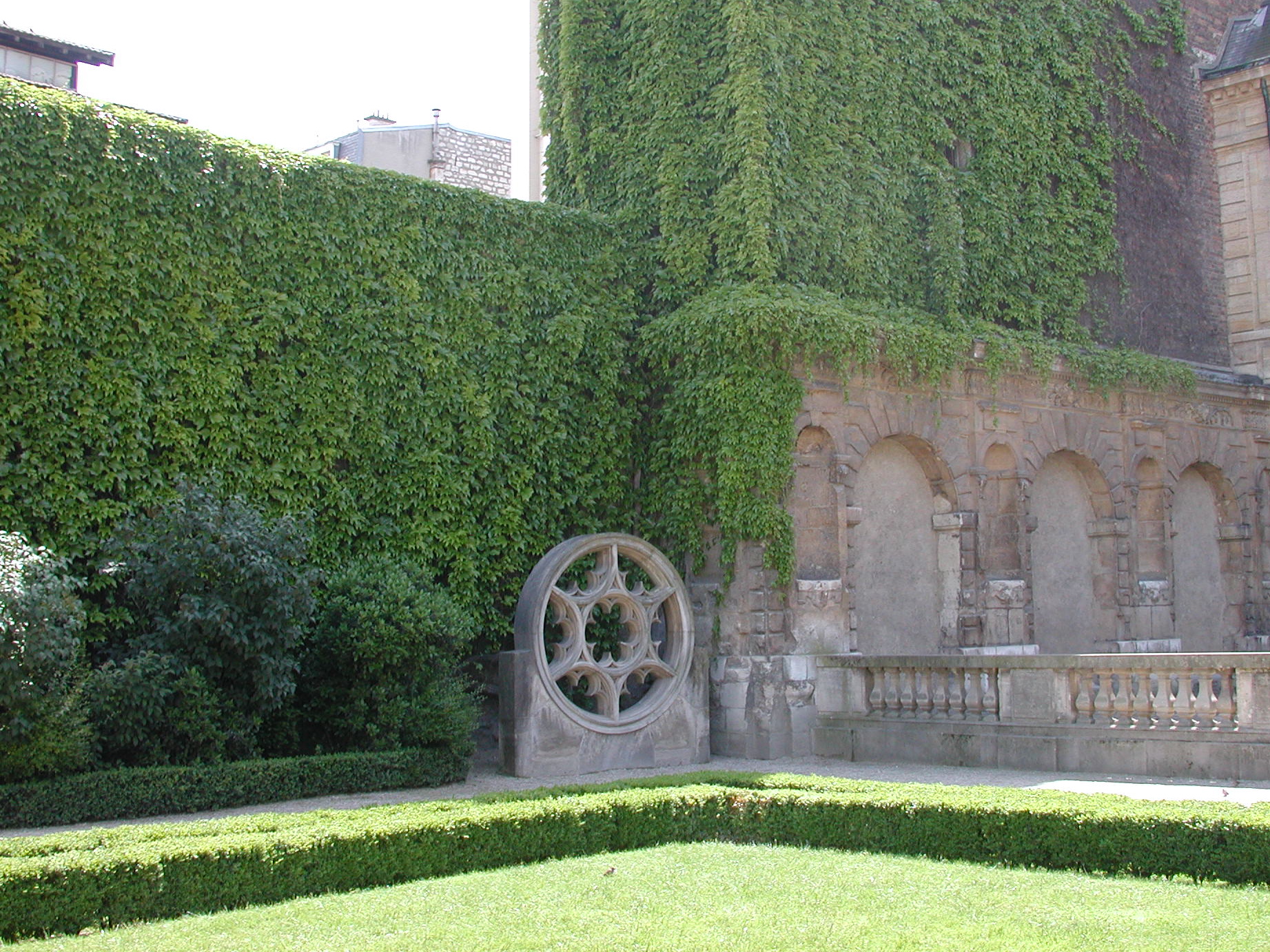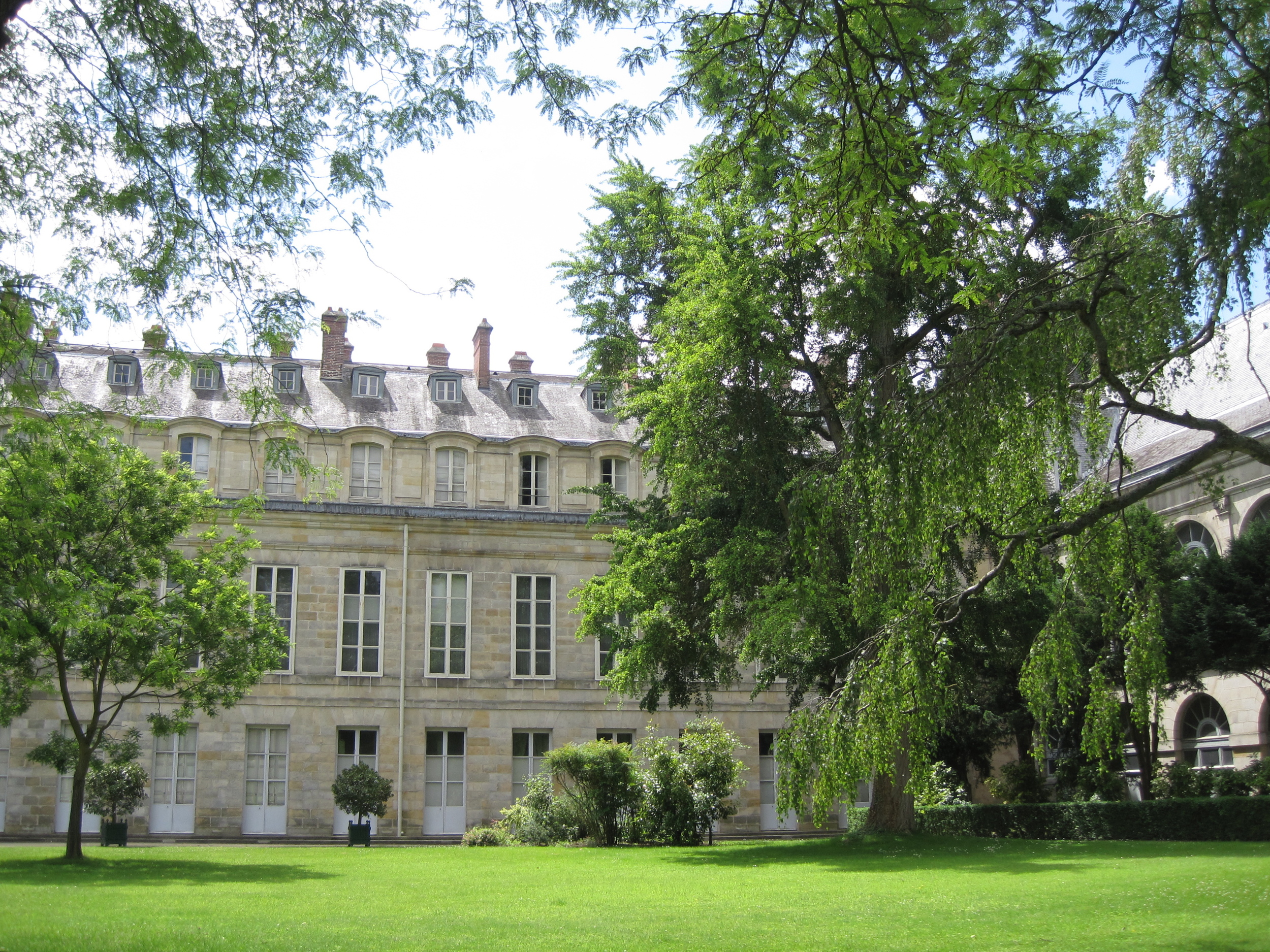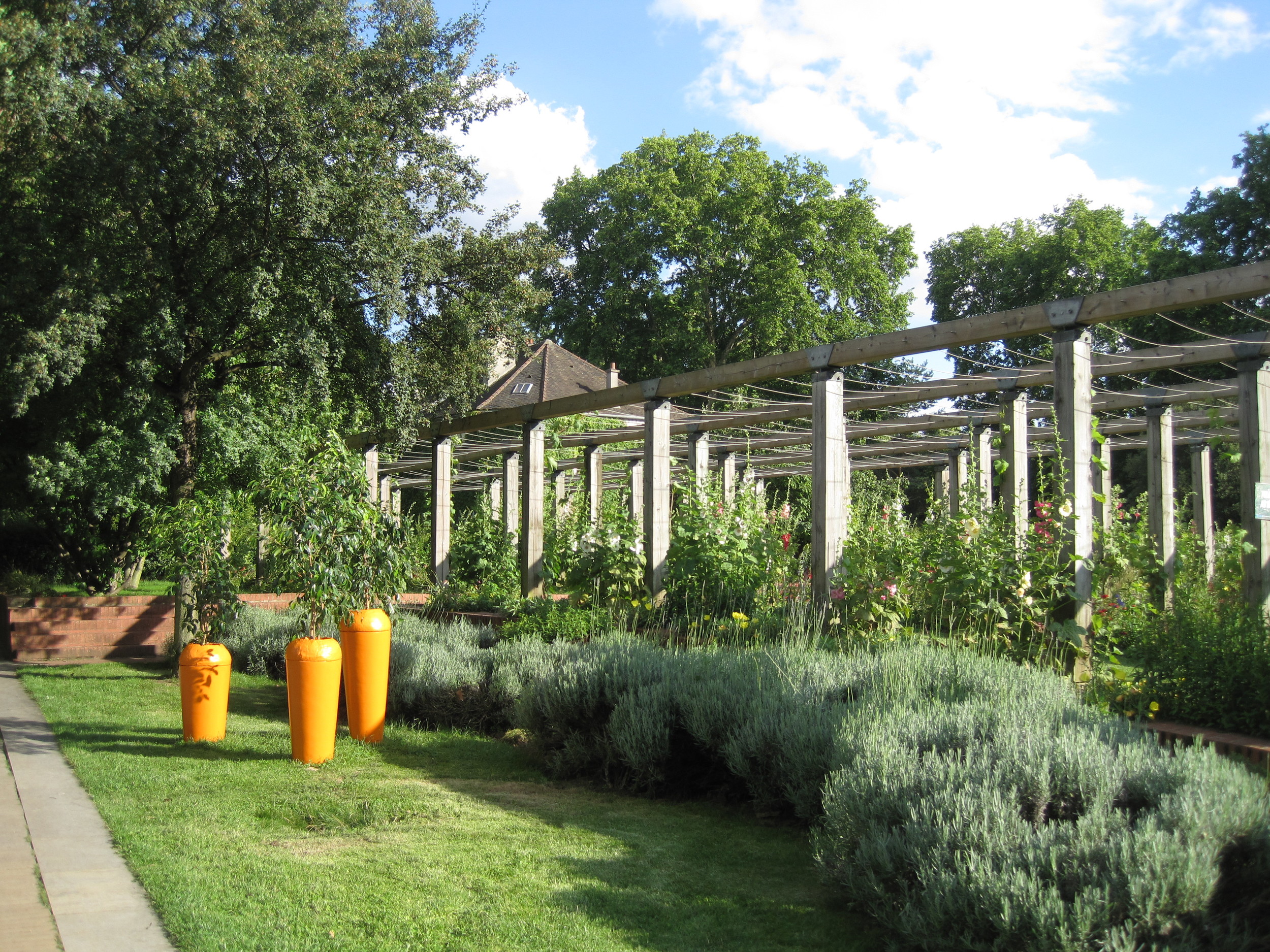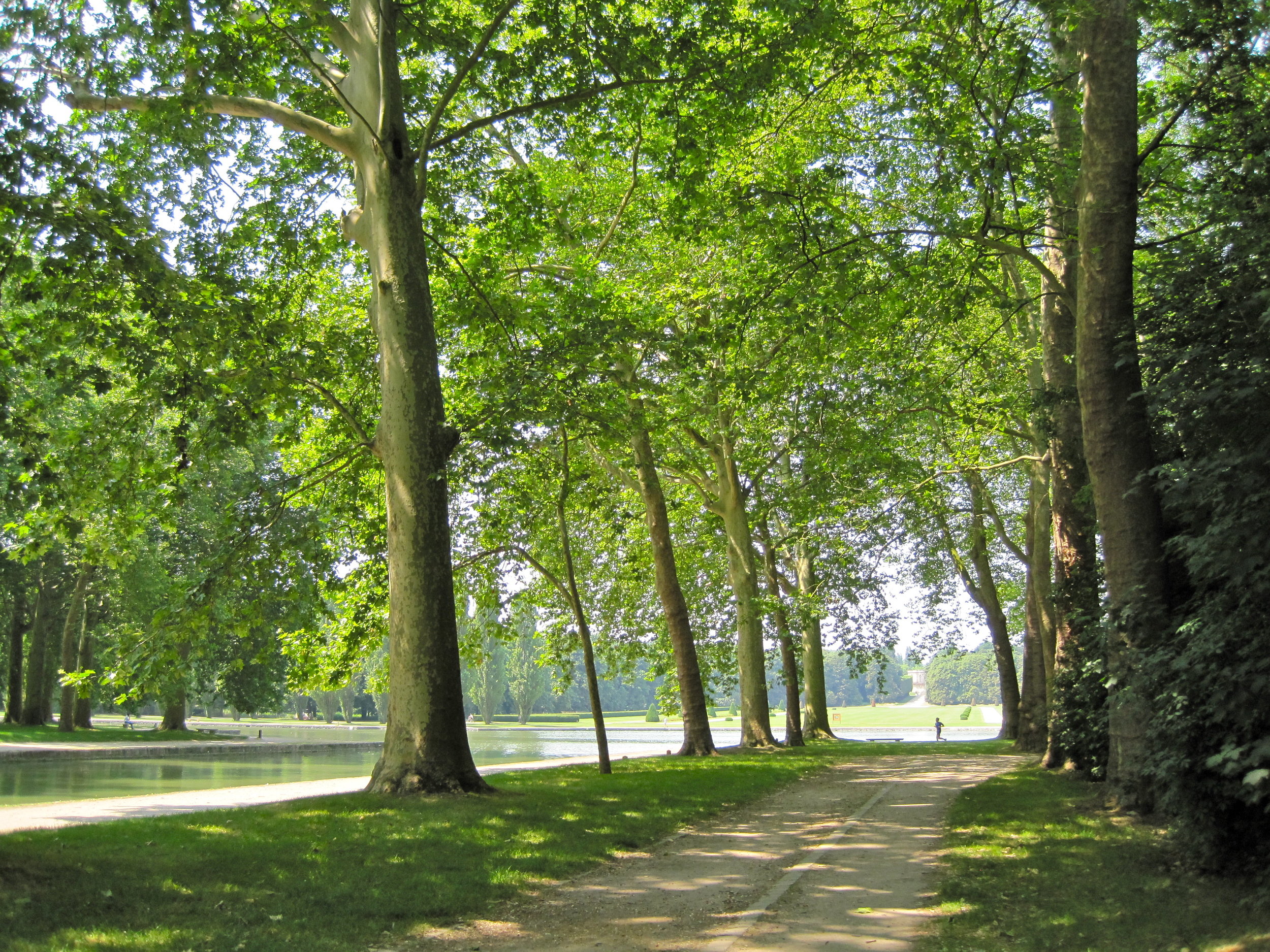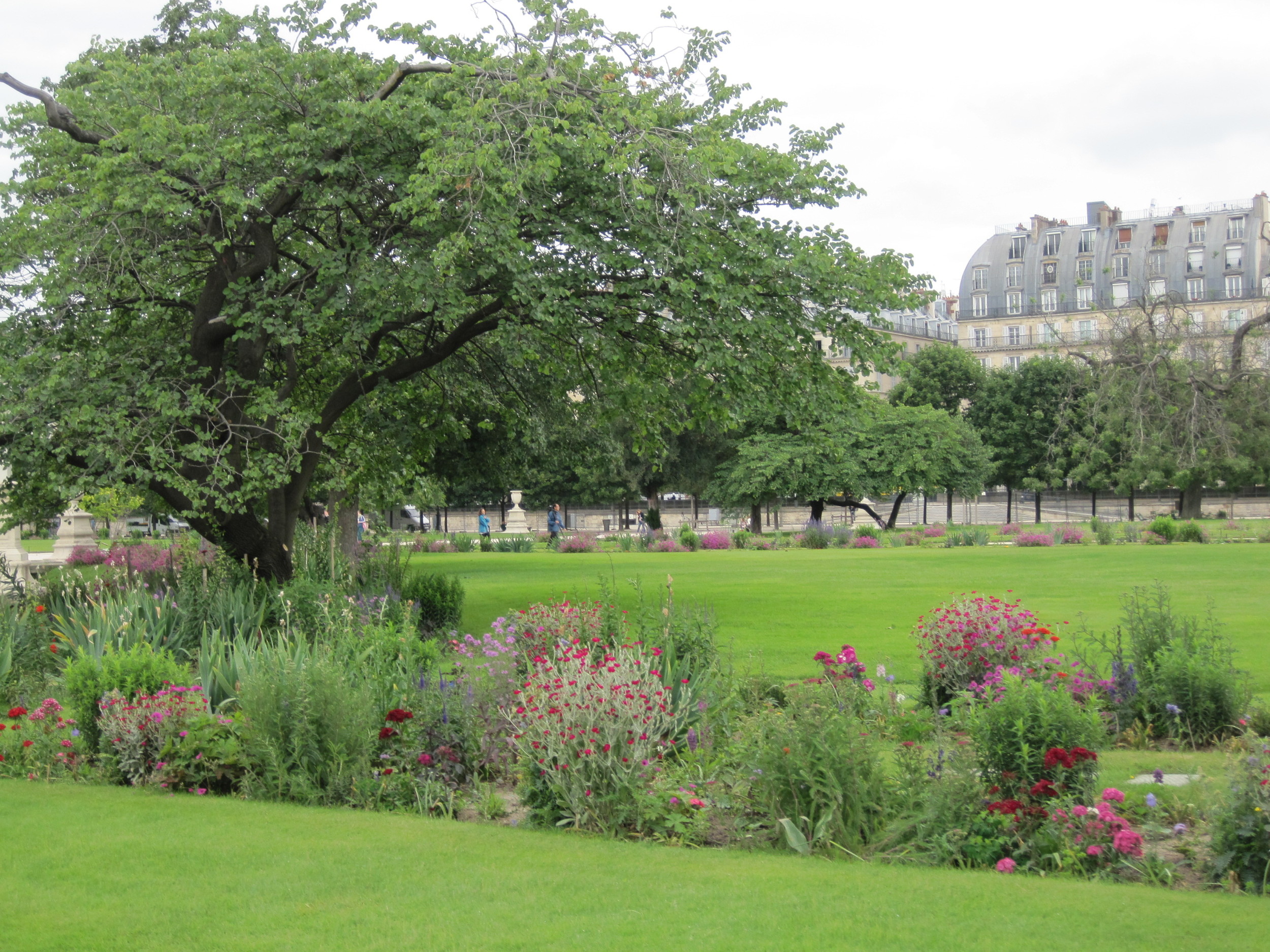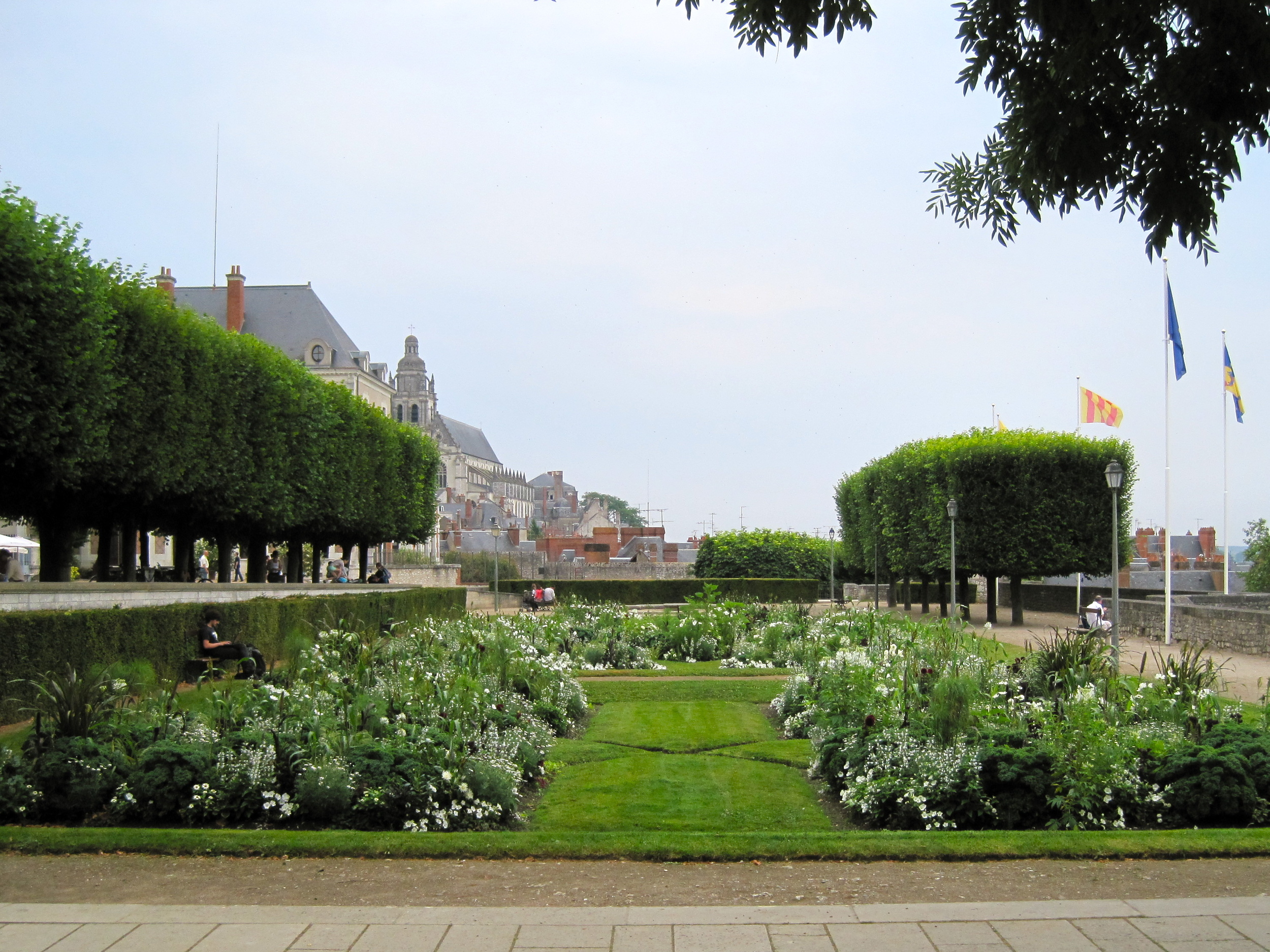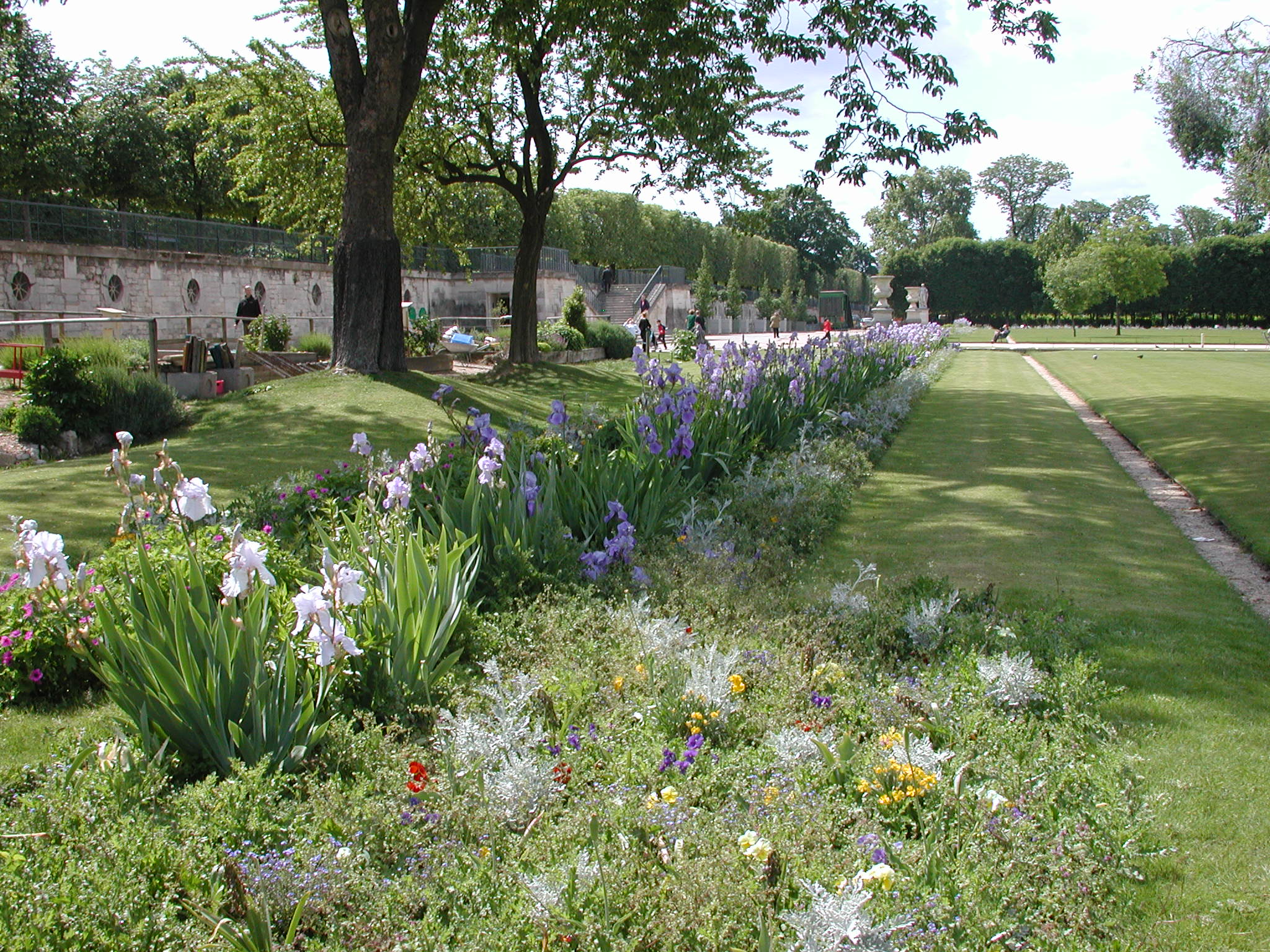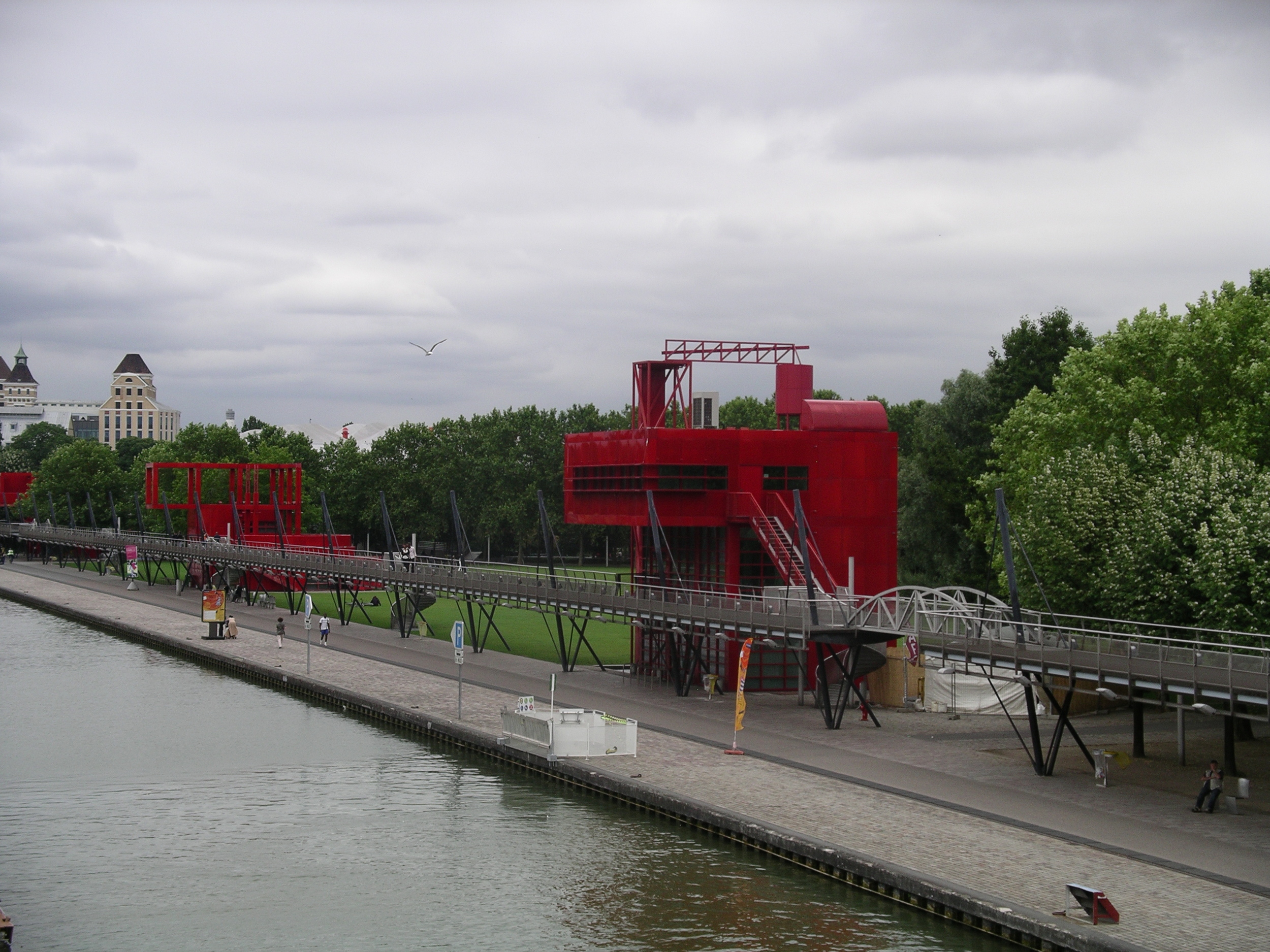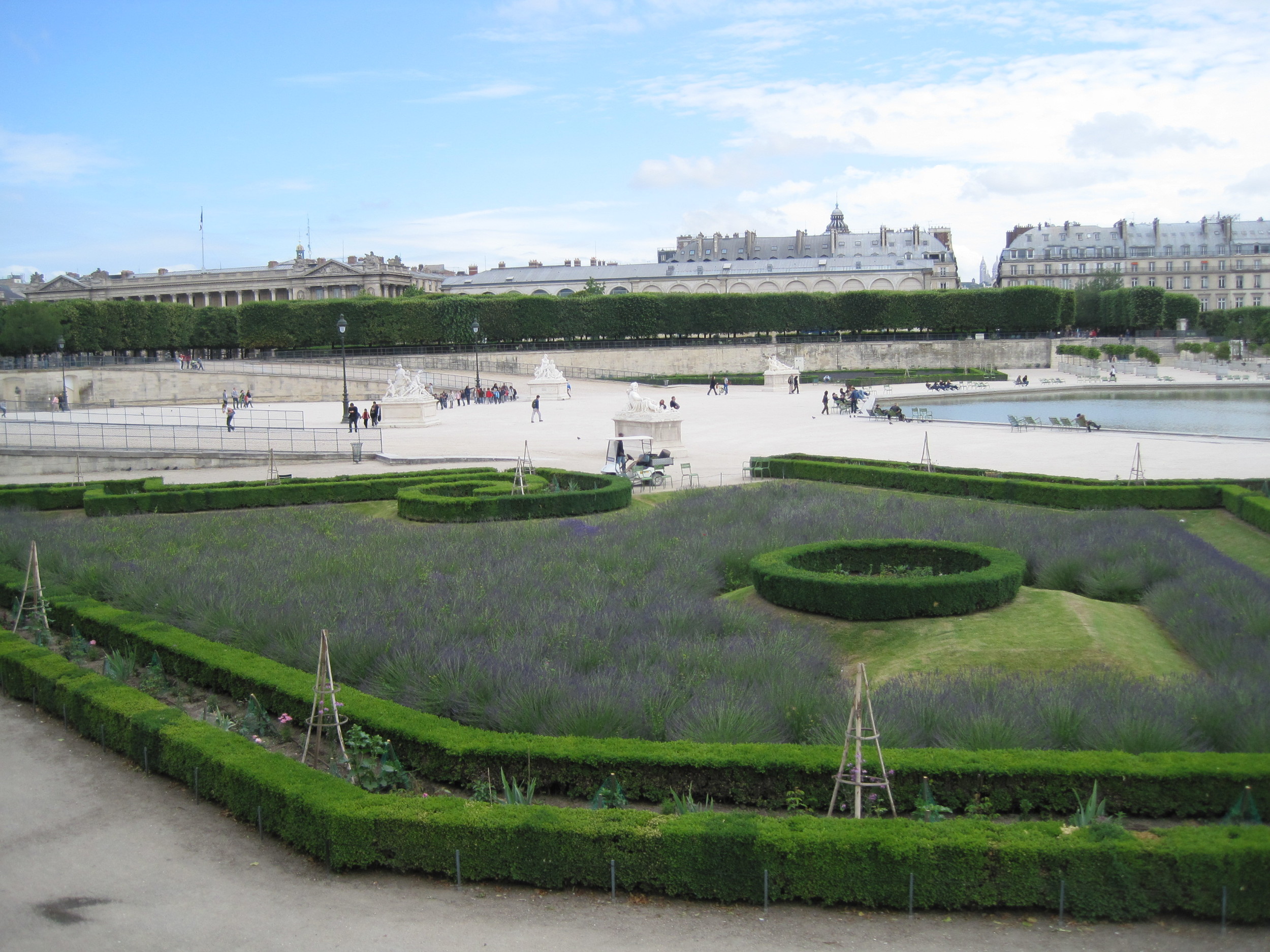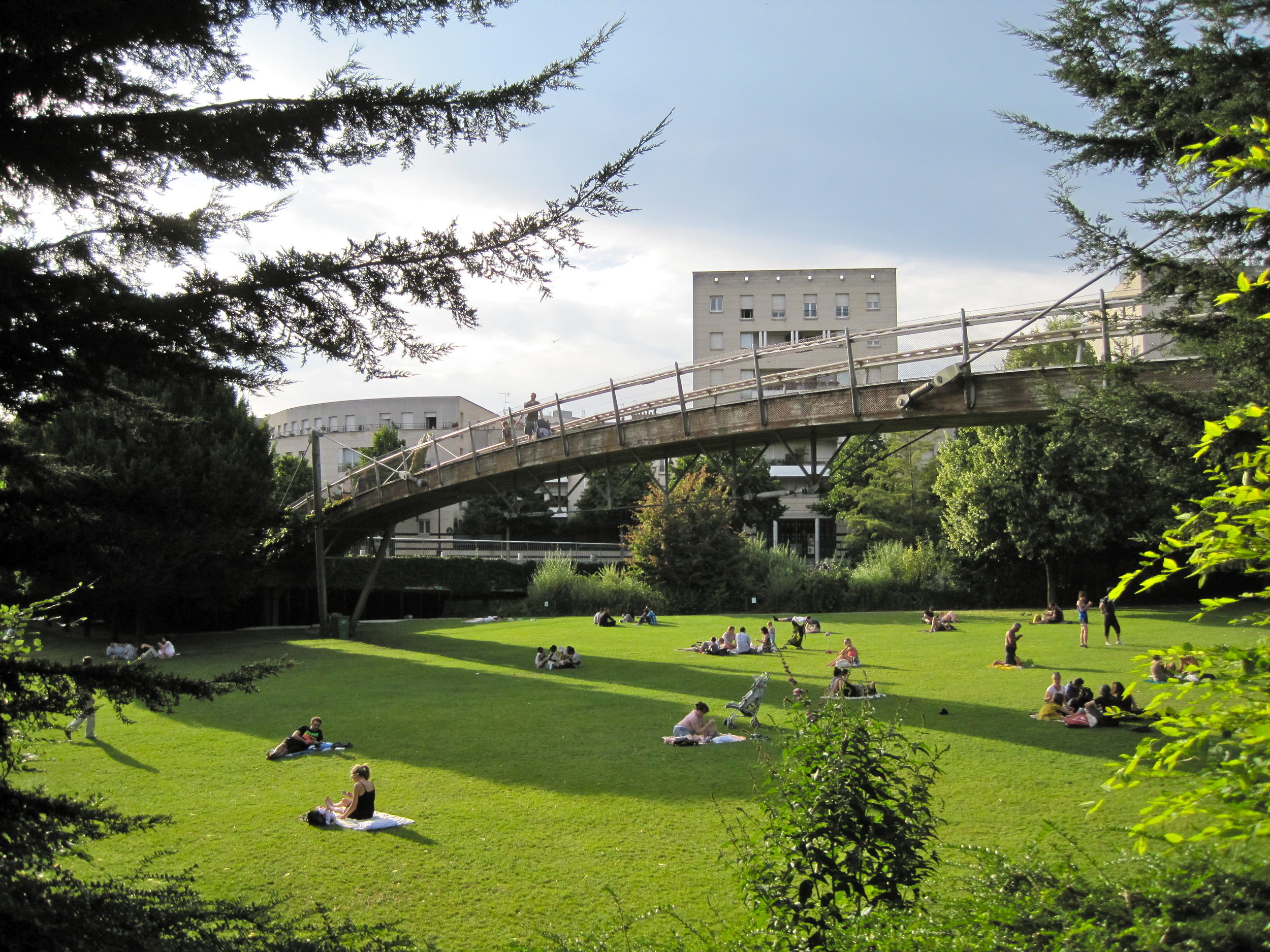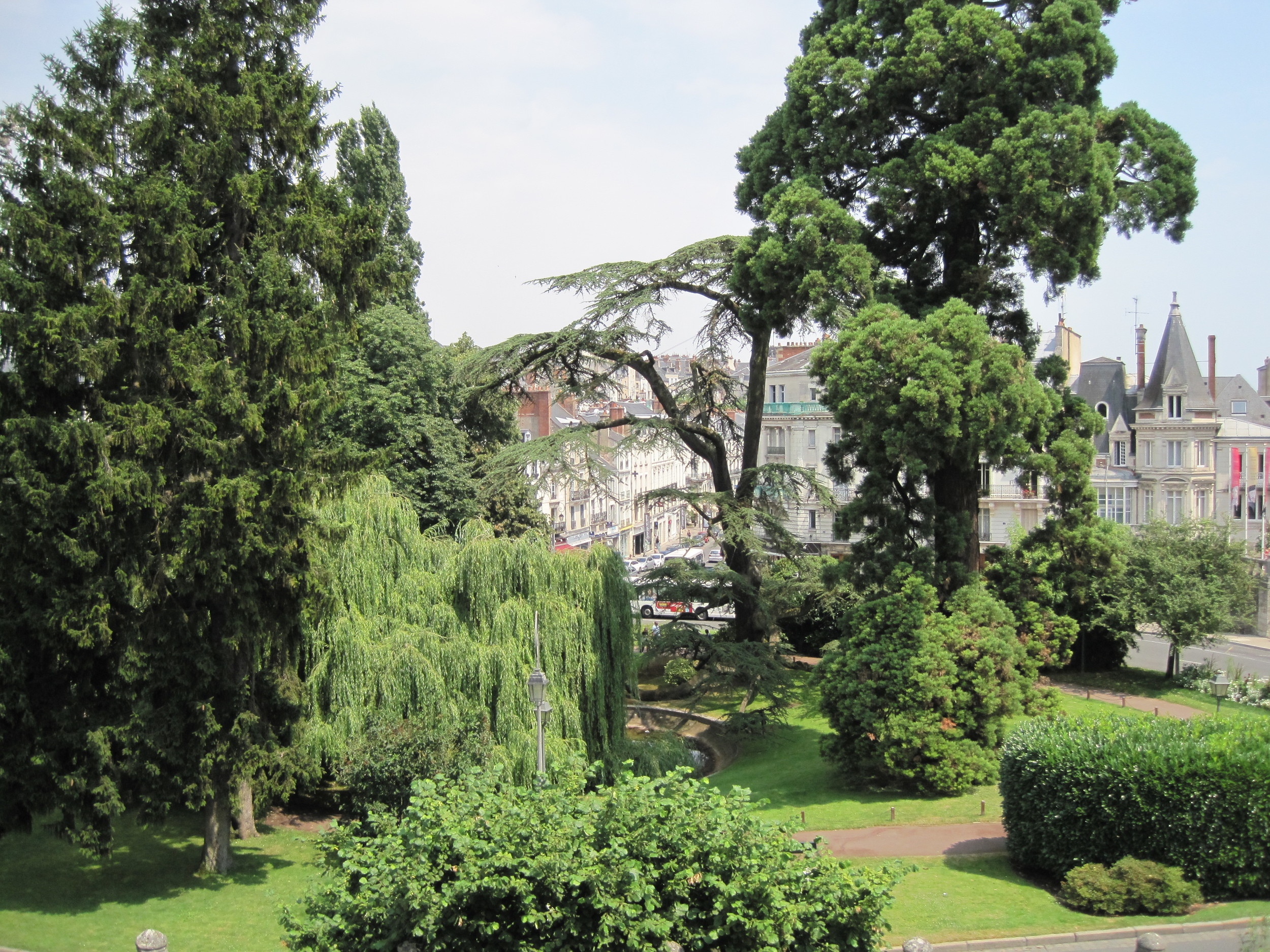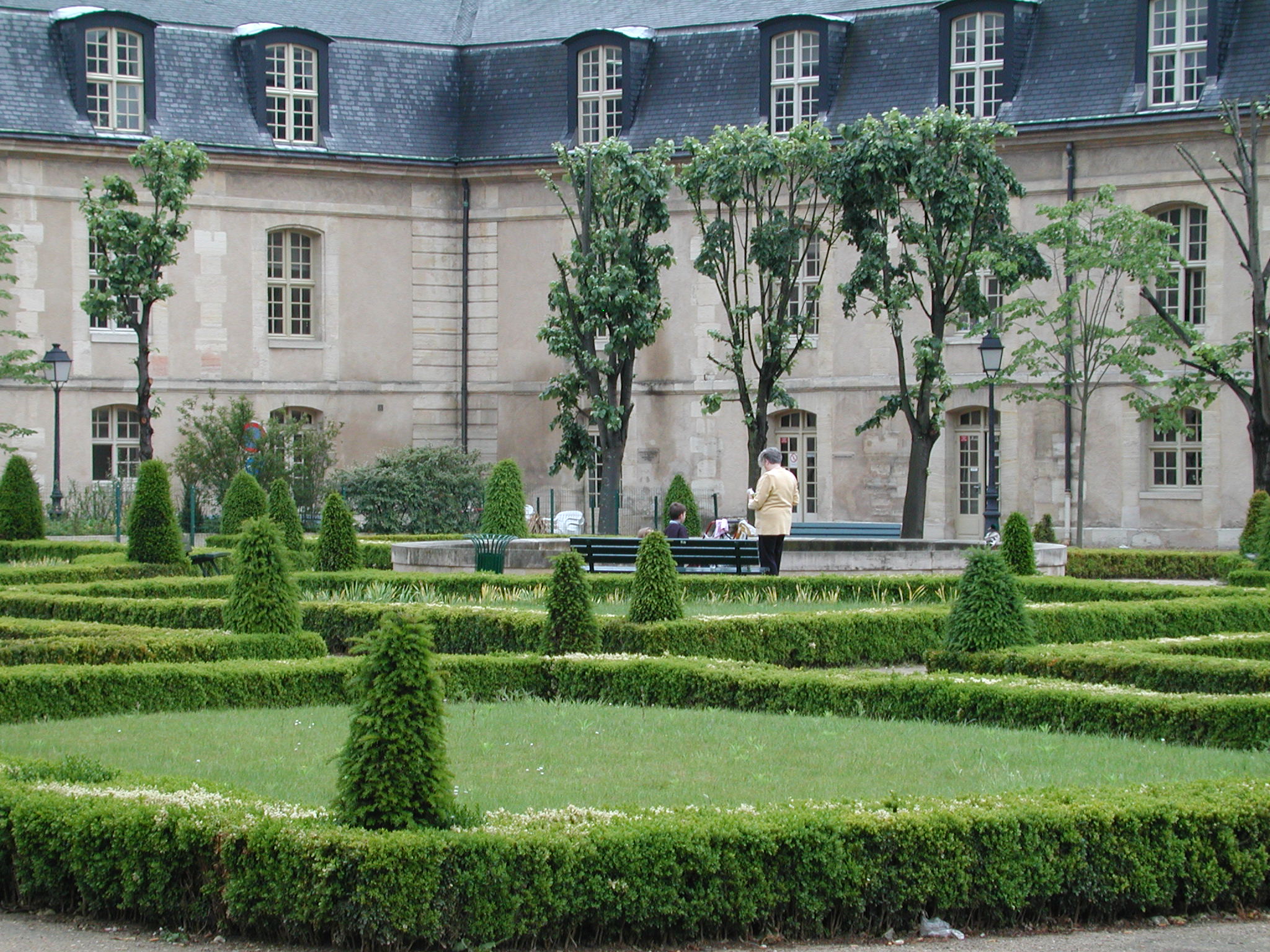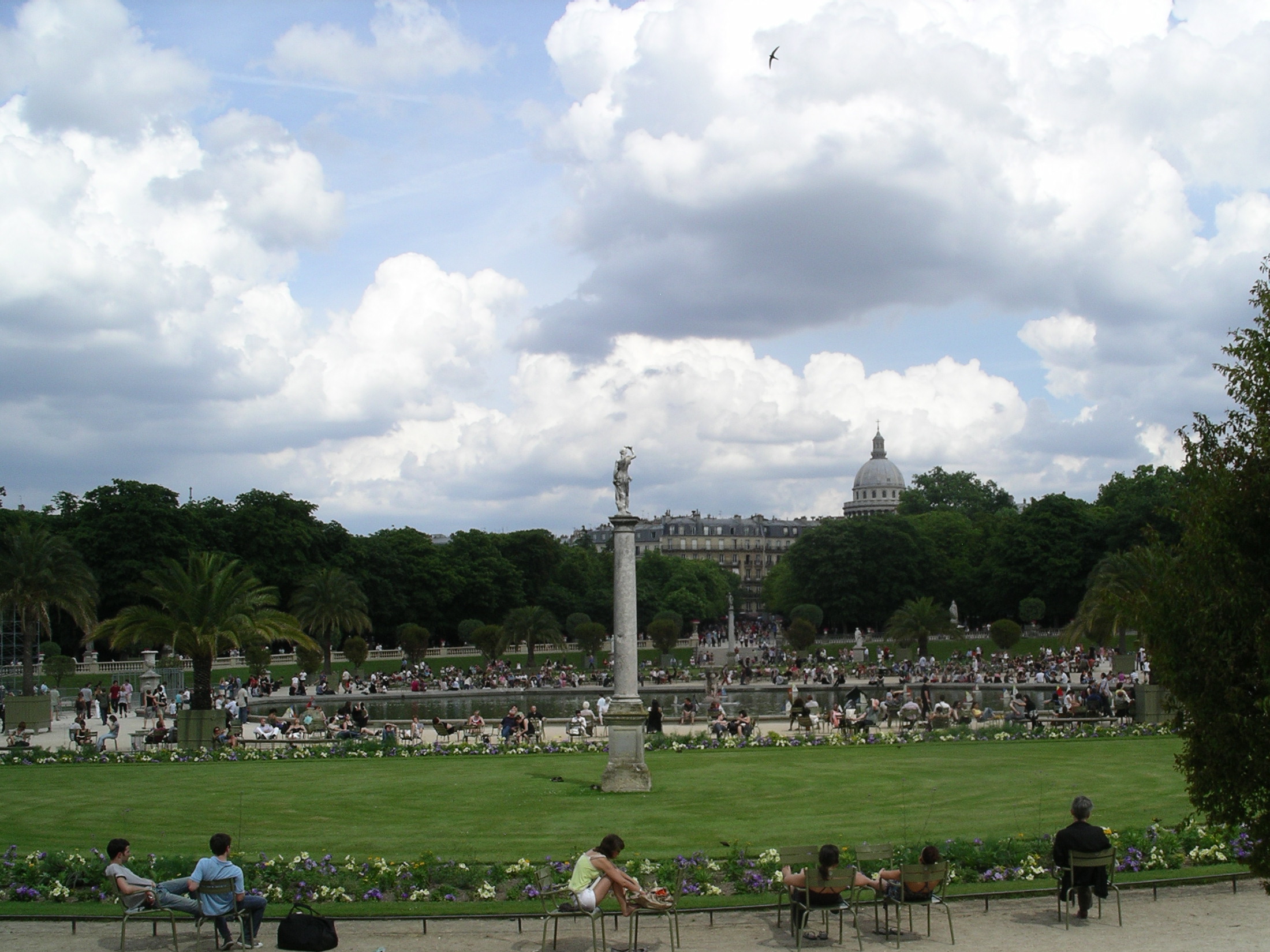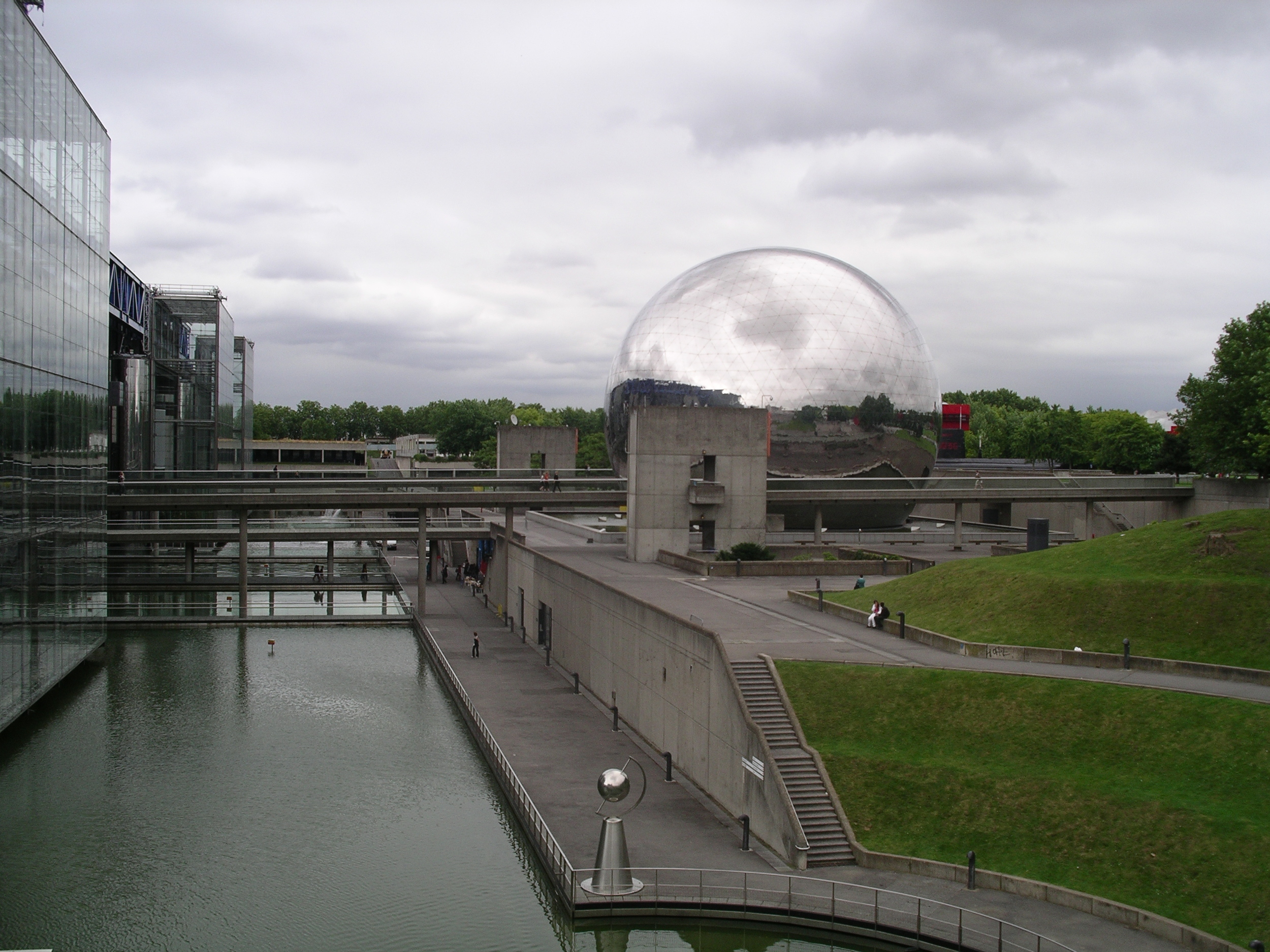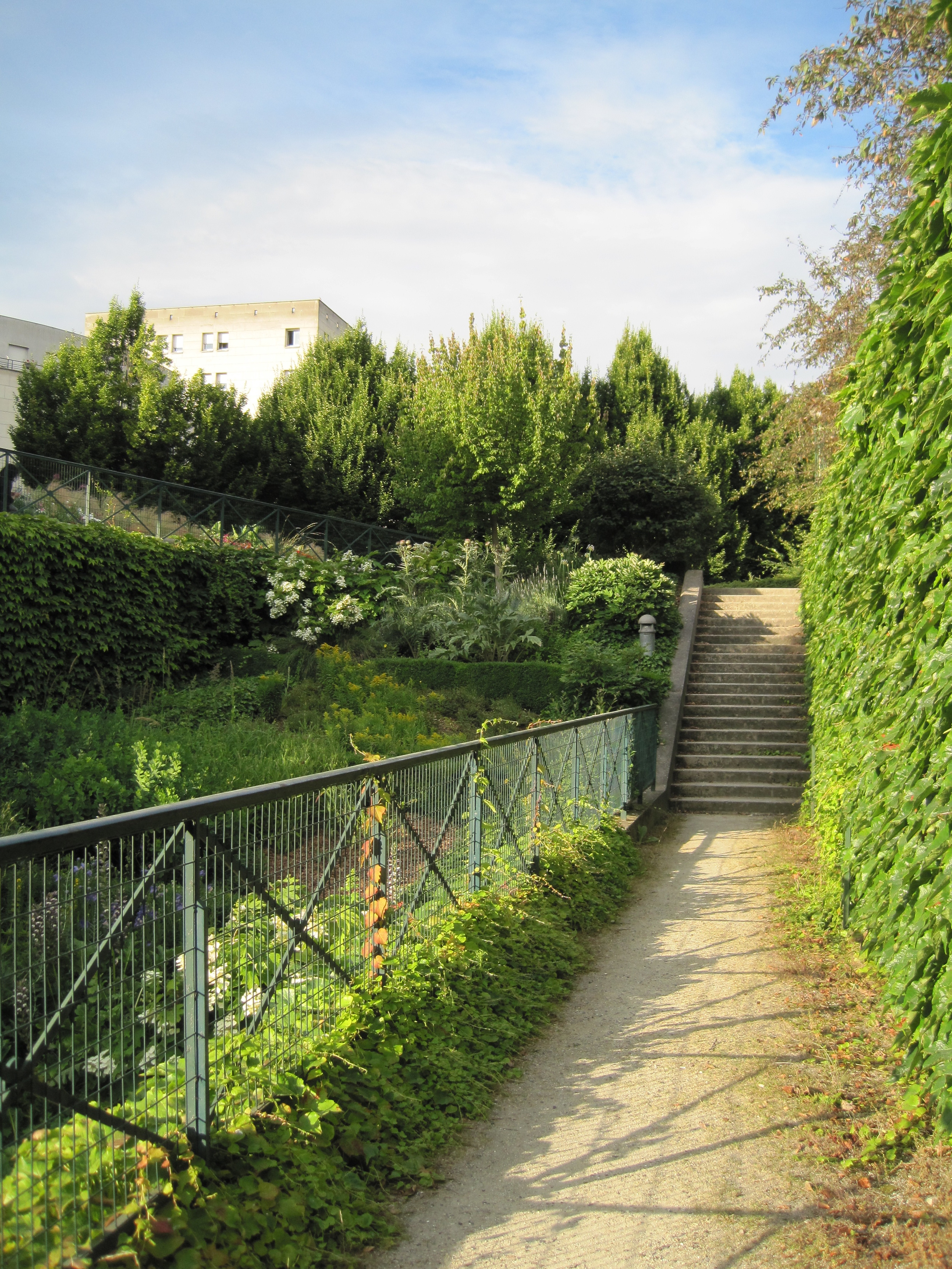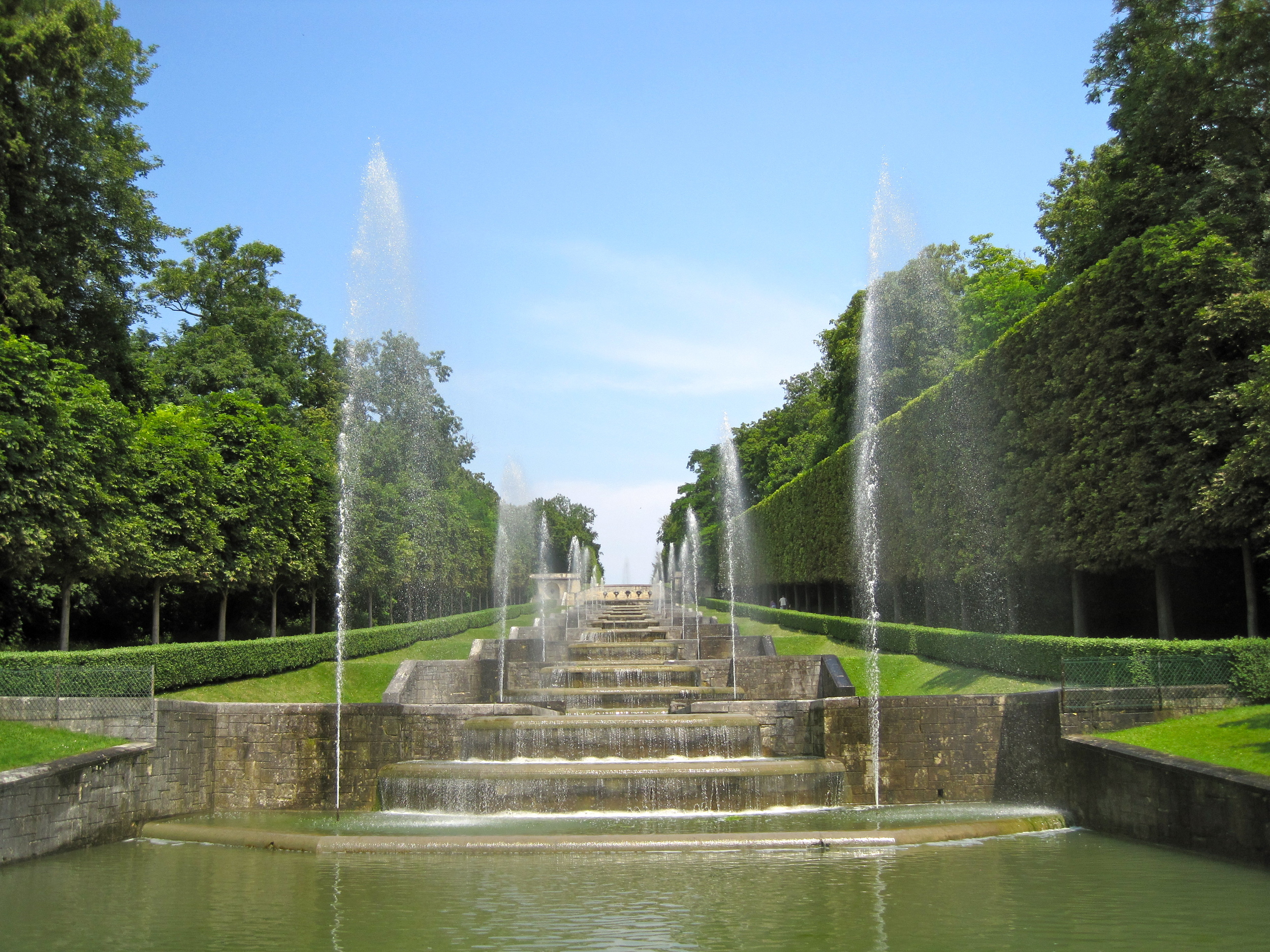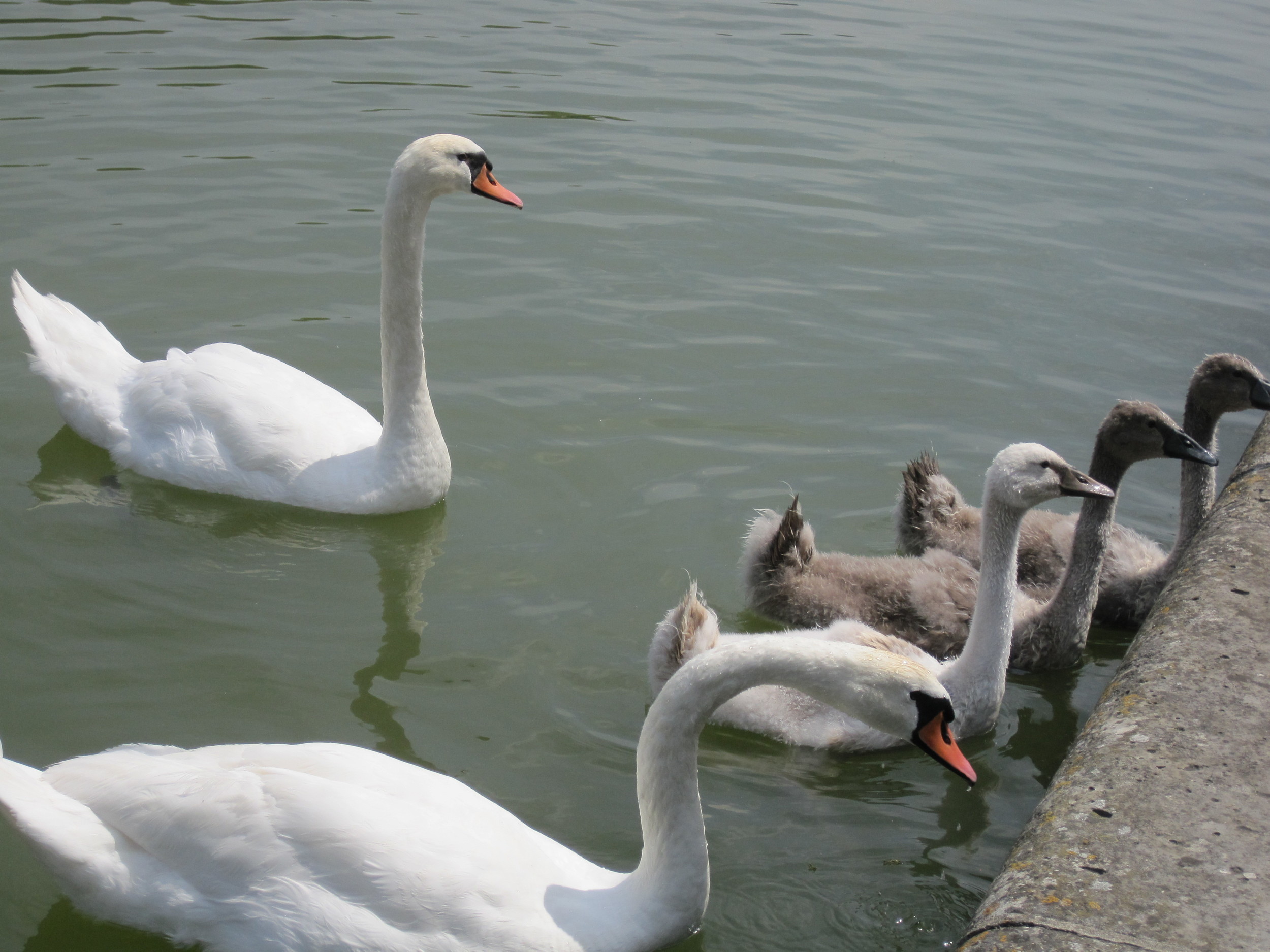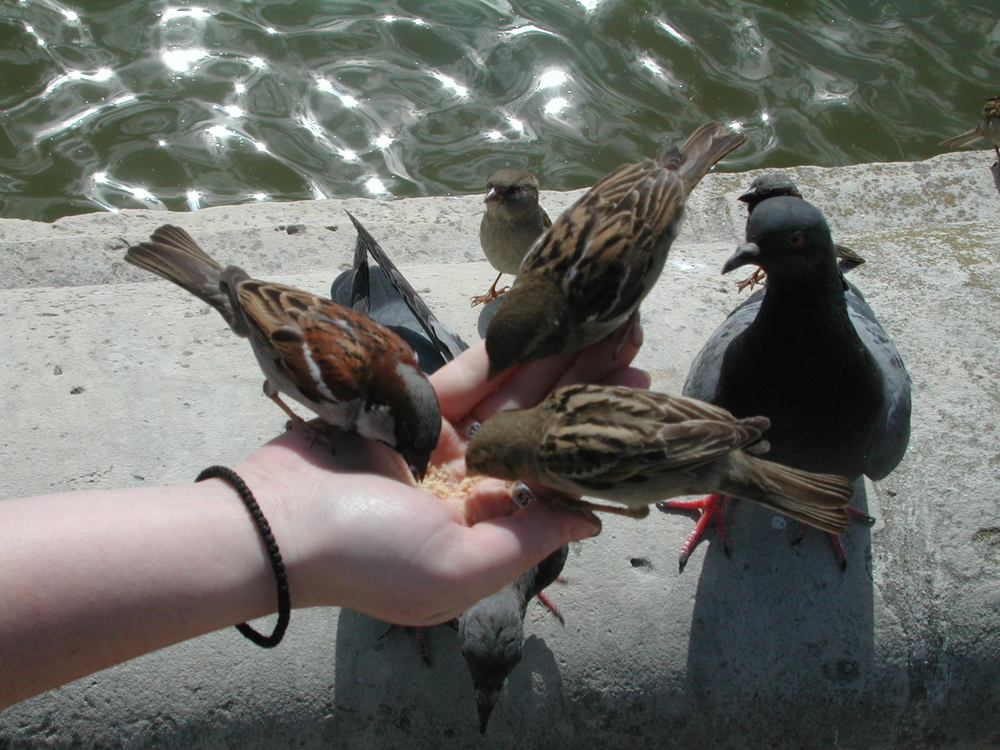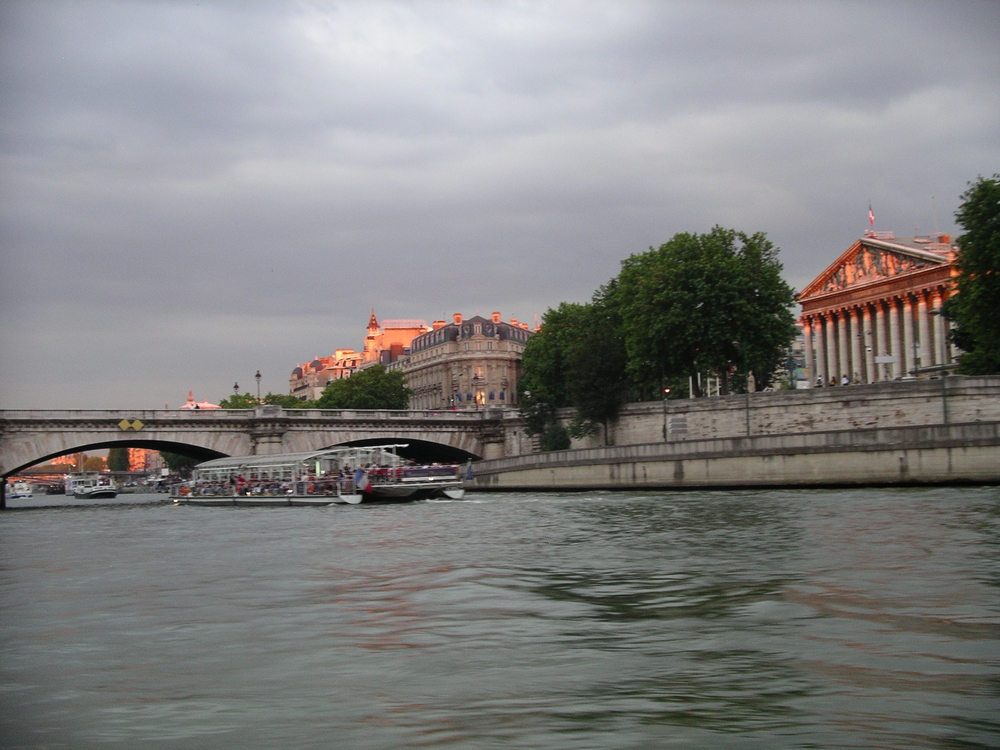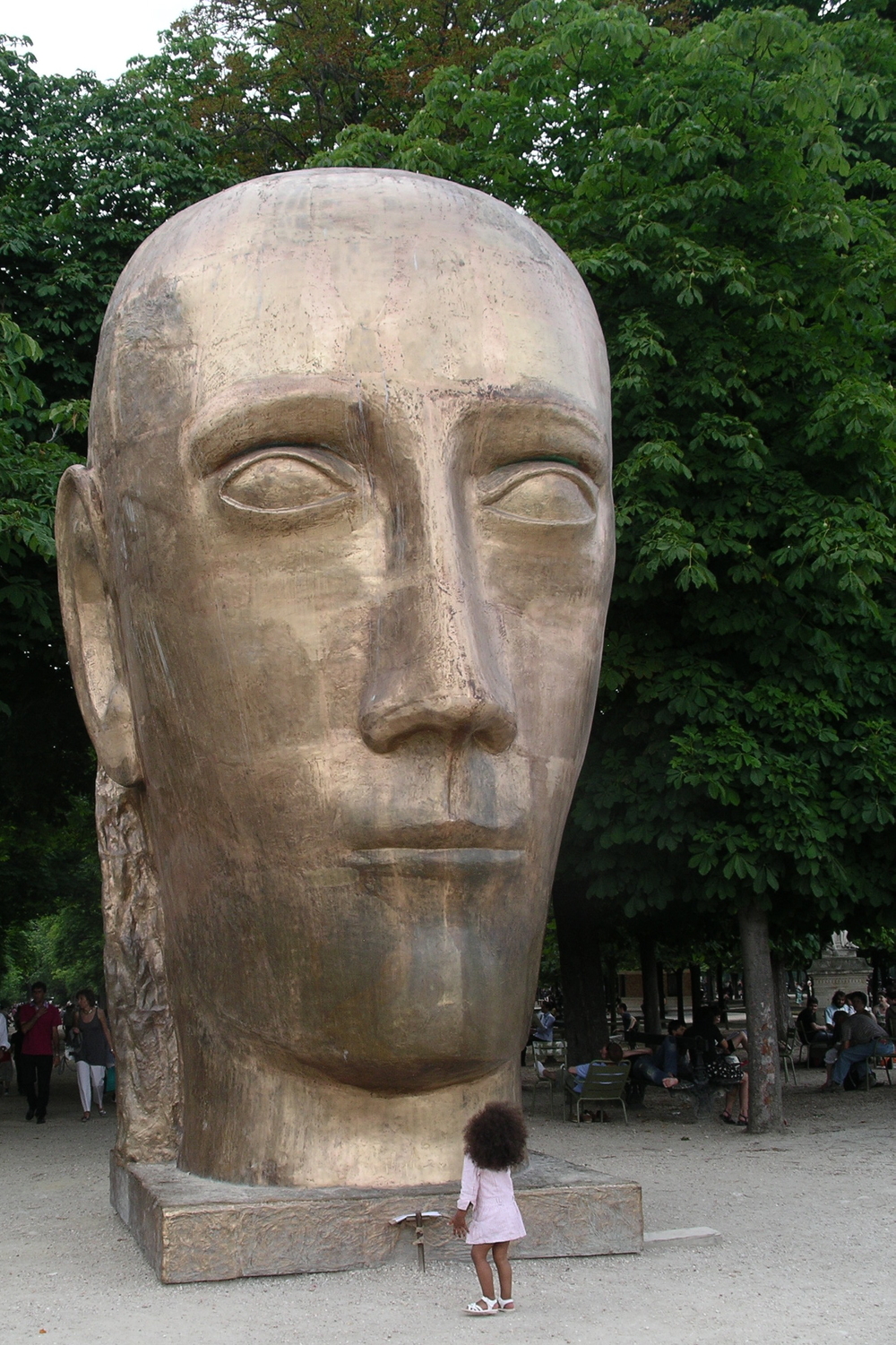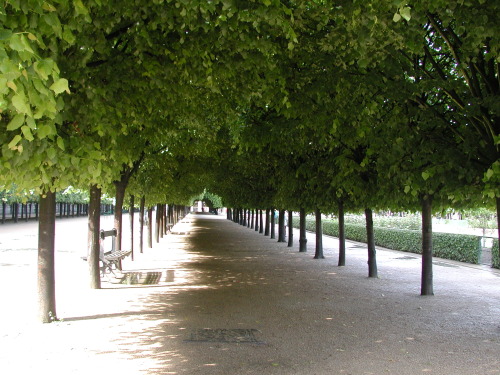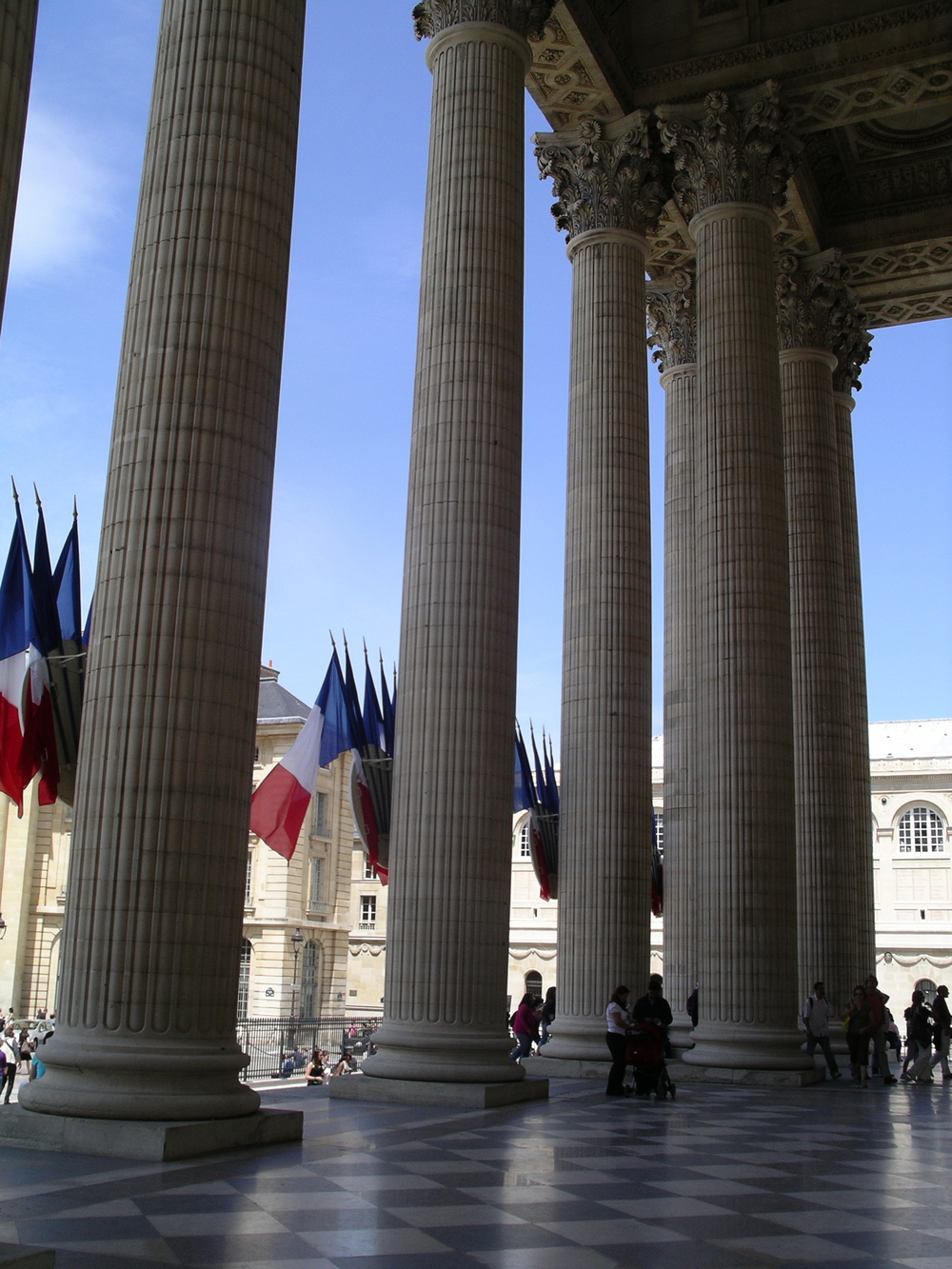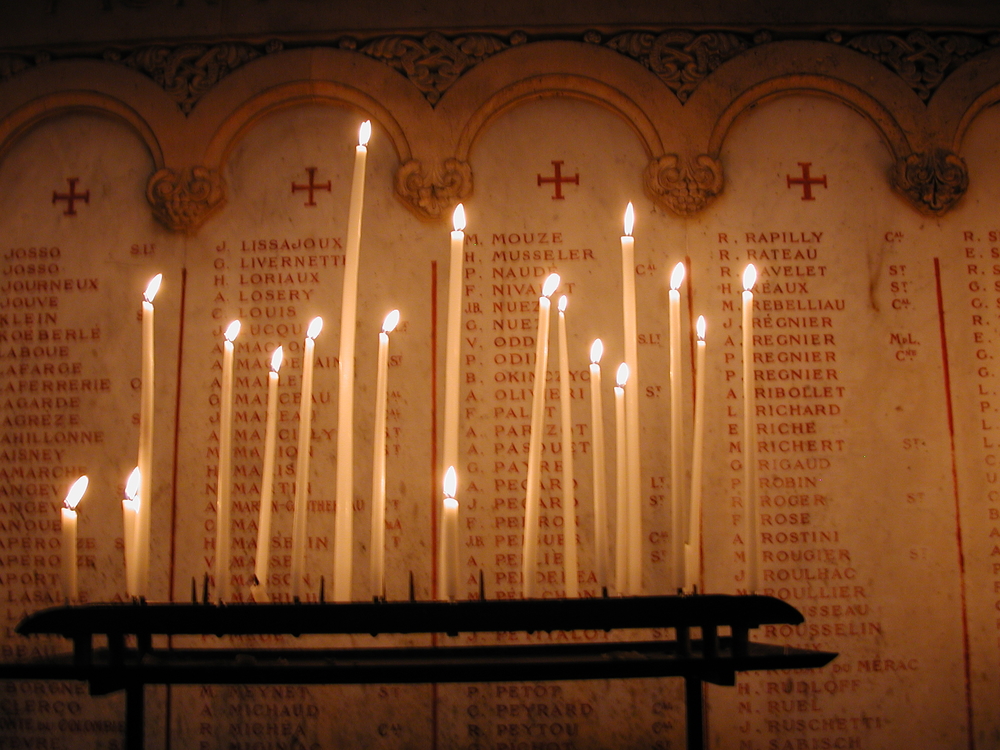So little time to think, this time of year. But so grateful for moments like this.
True Love and the Tides
When you love someone, you do not love them all the time, in exactly the same way, from moment to moment. It is an impossibility. It is even a lie to pretend to. And yet this is exactly what most of us demand. We have so little faith in the ebb and flow of life, of love, of relationships. We leap at the flow of the tide and resist in terror its ebb. We are afraid it will never return. We insist on permanency, on duration, on continuity; when the only continuity possible, in life as in love, is in growth, in fluidity -- in freedom, in the sense that the dancers are free, barely touching as they pass, but partners in the same pattern. The only real security is not in owning or possessing, not in demanding or expecting, not in hoping, even. Security in a relationship lies neither in looking back to what was in nostalgia, nor forward to what it might be in dread or anticipation, but living in the present relationship and accepting it as it is now.
--Anne Lindbergh, Gift from the Sea
I'm not sure how I made it through a decade of marriage without these words. But I'm grateful to have them now.
Becoming Lebanese
Last summer a group of friends at the SMI was staying up way, way too late drinking wine and unloading after a long day of teaching and learning. They invited me to join, but no sooner had I settled in than one friend decided it was time for bed. He began saying goodbyes, and I began laying on the guilt:
"You're leaving? I just got here!" (It was after midnight.)
"We never have any time to talk!" (Patently false.)
"Why do you hate me?" (If your Middle Eastern do not habitually play this histrionic trump card, you must not really be friends. It's a staple of the culture, as common as "keep a stiff upper lip" to the British.)
This last line prompted an outburst of laughter from all the Arabs present, which was just about everyone but me; one of them dubbed me an honorary Lebanese on the spot. Defeated, my tired friend stayed another half an hour and then asked for my permission to retire.
Of course my real attraction to the Lebanese culture is not the guilt but the food. Last Pascha Rob surprised* me with the gift of this incredible book, which contains over 500 (!) traditional recipes and modern updates. It's a work of art, full of gorgeous photographs, and I enjoyed leafing through it for several weeks until the summer began. Then we hit a whirlwind of travel: we were gone 6 weeks out of 8, with mere days at home between trips. We finally arrived home on the cusp of the Dormition Fast, ready to stay put for awhile, and I was itching to start cooking for myself again after gracing the interior of far too many good and bad restaurants.
Here's the thing about fasting: it should be simple. Eat less, give more -- to God, to the church, to others. That's it. Instead, it becomes a chore. Reading labels. Planning exit strategies for social events. Trying to think of an allowed meal that sounds appetizing and contains something healthful. I hit Fasting Fatigue early and often during Lent and Advent, and this usually leads to breaking the fast or resenting the fast, or both.
So on July 31, I picked out a few traditional Lebanese recipes I wanted to try. All were fast-friendly (vegan) and fairly easy to make, if a little time-consuming: the fresh ingredients meant that a lot of chopping and pureeing was involved, though each dish was elemental in its simplicity.
I was overjoyed, as I finished each one, to find it tasted exactly as it did at the best Middle Eastern restaurants (of which none exists in this area, and believe me, I have tried them all.) At the end of two days I had a fridge full of healthy meals that were easy to prepare and so delicious I wouldn't even think of straying. We ate dips made from eggplant, chickpeas and walnuts; salad with lemony garlic dressing and pita croutons; and olives and pickled turnips, twice a day for a week. Then it was gone and we had to make more, only this time we added falafel, fried cauliflower, tahini sauce, tabbouli, preserved-lemon dressing and semolina almond cake, and doubled everything in honor of my mother's birthday. Over a dozen people crowded my house, each one effusive in praise of the amazing food, and the recipes were so straightforward I couldn't even try to take credit.
I didn't miss meat, not once. As much as I wanted to try the grape leaves with cinnamon-laced beef, raw lamb with spices and thick, creamy yogurt dip, I was perfectly happy with what I had made, the other 80% of the Lebanese canon. And it got me thinking about fasting and community. Saydeh touched on this in her comments about Holy Week (buried midway through this piece -- good luck!) When everyone is eating the same things, there are no pins and needles about cooking for guests or choosing what to eat at a host's table. And when the food is naturally, wonderfully simple, fasting becomes the norm; days when meat or dairy is allowed seem like a luxury.
We noticed this about our friend who is a priest in Southeast Asia and also a fabulous cook; most of his favorite recipes are based on vegetables and tofu, seasoned with a wide variety of aromatics and spicy sauces. When he's eating meat, he might throw in some chicken or beef, but tofu alone is delicious because it's allowed to be tofu -- it's not trying to be a hamburger. American food is just stubbornly unadaptable: all our traditional favorites (hot dogs, sandwiches, ice cream, pizza) are not only generally unhealthy, but also unpalatable without cheese and meat. Ever tried a veggie sub? Bread and sliced raw vegetables. As asetic and pitiful as it sounds.
Last year I fell into the habit of grabbing something small to eat during the school day -- yogurt, fruit, a boiled egg -- and eating my main meal of the day in the afternoon when I returned home and had access to my whole kitchen and pantry. So on Friday I had some nuts and fruit at school and came home to fattoush, hummus and mahamra. Then Rob mixed up ground beef, rice and spices and we rolled over a hundred grape leaves. We brought a few to the house of some close friends to enjoy, nightfall bringing the start of a non-fasting day, and in our conversation they pointed out the crux of what I'm getting at here. Not that the whole world should convert to a Middle Eastern diet (I wish!) but that being part of a traditional community makes fasting not only doable but enjoyable.
Next on my journey to becoming Lebanese: discovering what magic they can work with chicken. And a very pleasant Advent fast.
*I may have ordered and paid for it myself, but I promised to give him credit. That counts, right?
Paris Top 10: Parks
Freshly returned from Paris, I'm determined to finish this series once and for all!
Paris and parks are so synonymous, they're practically the same word. Everywhere you turn there are carefully trimmed and planted arcades of trees, windowboxes and street urns spilling over with flowery vines, sculpted topiaries and manicured lawns. But truthfully, none of these things guarantees a park. There are some rules.
Rule Number One: Parks must be free. Parisians think it ludicrous to pay for basic human rights such as breathing, talking and relaxing in nature. I have to say I admire their attitude and have started voting "yes" on any question of public green spaces in my community, borderline libertarian though I am.
Interestingly, although the chateaux of the Loire valley (including those close to Paris, such as Versailles and Fontainebleau) all require admission fees to the house and gardens, there is always a public park that adjoins them, often so seamlessly you don't even notice the ticket checkpoint. This is good to know for anyone who isn't as fond of tapestries and topiaries as the rest of his group.
Rule Number Two: There must be a place to sit down -- preferably, to lie down. Parisians routinely travel with blankets, shawls, and something appropriate for an impromptu picnic -- fruit, cheese, wine, all of the above. Good conversation can only take place when both parties are comfortable, and what's more comfortable than stretching out with grass between your toes?
This past trip I flew directly from a conference to meet Rob and the rest of the group in Paris. After a seven-hour flight and another hour in the taxi, I dropped my things at the hotel, showered quickly, grabbed a croissant and led the group on another two-hour metro-train-bus-foot marathon to Chateau Fontainebleau. Once the students were safely inside, I told Rob I had to go lie down for awhile, and headed for the park. I found a stone bench in the shade and fell fast asleep.
About an hour later I awoke to the sound of sharp scolding. Breathless, I sat up, afraid I had transgressed some local ordinance, but the two park employees were only scolding a group of tourists for feeding the ducks. When they saw my wild eyes (and wilder hair, I'm sure) they waved me off. "Vouz pouvez dormir, madame," one assured me, and "La sieste, c'est autorisee," the other agreed. Naps are authorized. Good to know.
Rule Number Three: There must be some form of water present. A pool, a canal, a fountain, a lake -- anything that allows the play of light to dazzle the eyes, the rushing music to quiet the mind, a slightly cooler temperature to moisten the skin. Without water, grass is just a lawn, but alongside water, grass becomes a playground, a cushion, a studio. Water is vital to the park-ness of a park.
When my sister was traveling in Europe, she made plans to meet a friend in Italy: "At ten o'clock by the FOUNTAIN. How amazing is that?!" And truly, fountains and ruins and carefully pruned hedges and exuberant, overflowing gardens are all just part of life there. Our aesthetic is a little coarser on this side of the Atlantic, where civilization is a newer idea. After hearing my sister's story, I tried to imagine where I would meet a friend who was coming to my town. The post office? The coffee shop? No central design feature stood out. That struck me as sad.
When I started writing, I was sure there were more rules. But I think this is it. Children are welcome, of course, and parks are one place where they can run and scream with abandon -- but some parks are quiet, and that's okay. Likewise with dogs, with workout clothing (though you see blessed few of this in France, as opposed to here where a leisurely stroll is often impossible between all the huffing and whirring around you.)
It's a simple thing, really. A place to sit and think, catch some fresh air, clear your head. We like them in America, but to the French, parks are non-negotiable.
Posts in the Paris Top 10 Series:
- Wait and see . . .
- Wait and see . . .
- Parks
- Music
- Museums
- Fine Dining
- Conversation
- Churches
- Chateaus
- Cafes
Habits and Holiness
Eight posts in the last six months. My, how the wordy have fallen!
Sometime during these months of silence, I started thinking about my life, which is incredibly blessed in many ways and kind of a mess in others. Since it's much more depressing to think about the messy parts, that's what I've been doing -- and coming to some odd conclusions.
For instance: I don't have any habits.
Really. None. I don't get up at the same time every morning. I don't always brush my teeth before I go to bed. I don't eat regular meals, walk the dog, play with the cat or clean the house or read books on any kind of a regular basis. I do each of these things as the moment strikes me, or when they absolutely need to be done to avoid disease or debt or embarrassment or all three.
Now you know the sad truth. I laid it bare, along with many other sad and true facts about myself, in confession just before Christmas. I told my spiritual father that I wanted to have a more ordered life, and that I knew the first step in ordering my life was ordering my soul. I asked him to help me to really, actually start living like a Christian.
"Well," he said. "Do you want to get a pen and paper?"
These words thrilled my organizational heart of hearts, and eagerly I took notes as he reviewed the three main supports of a holy life. Prayer: morning, evening, intercessions, reading Scripture. Fasting: more time with God, which means less indulgence in food and television and, hopefully, sinful behavior. Almsgiving: donating money, but also time, energy and resources, to those in need. We talked about visiting monasteries, praying before and after Communion, taking time for silence.
Of course I know I need to do these things. Christ speaks clearly about each one in the Gospels, and from my youth I have, not obeyed them, but fumbled in their direction. So what is stopping me from going deeper, from attaining what God Himself commands -- that I be perfect, as He is?
And so the last directive, though the simplest of all, was the most revelatory. My spiritual father encouraged me to return to confession soon, but also to confess often on a much smaller scale: examine each day's failings, ask forgiveness where necessary, and try again tomorrow. Examine each week as a whole before going, with a penitent heart, to Communion. Confronting my sins on a relentlessly regular basis, he explained, ensures they will return with less frequency.
In thinking about it later, I realized that to get better at anything (French, singing, throwing a Frisbee, making curry sauce) I need both practice and coaching. And so, to accomplish theosis -- to become like God -- I need to practice shedding my baser instincts and embracing the cross. So that, instead of two steps forward and one step back (or, as is more common, the other way around,) I can start to see real change in my soul, and in my life.
Why am I telling you all this? I guess so that you know I haven't really been silent all these months. I just haven't been ready to say this until now. So thank you, for waiting for me.
Overheard
X: My mom is so mean to me. Your mom is so nice.
Y: No, mine is mean! She's nice in front of my friends, but she's really mean to me.
X: No way. I've never even seen your mom get mad.
Y: Oh, she got really mad at me over break.
X: What for?
Y: I don't even remember. But she was really mad.
They had neared my desk at this point, and I couldn't help but interject: "I'll bet you were getting sassy. Right?"
Y: Probably. I'm sassy a lot.
(pause)
Y: I'm really mean to my mom sometimes.
X: Me too. I'm so mean.
A week later, I can still remember this conversation, and it still makes me laugh. If only their parents could see this, I think they would take heart.
Glory to God for All Things
What do you do when you lose your family, possessions and livelihood in one terrible day? If you're Job, you resist the impulse to write country music and instead give glory to God, who blesses you with even more than you lost.
Roughly two thousand years later, another dedicated servant of the Lord was dying in exile from the empire he had struggled to evangelize all his life. St. John Chrysostom, with his final breath, praised his creator: "Glory to God for All Things!"
Another millenium and a half after that, a Russian priest composed a beautiful Akathist, a sort of prayer poem, based upon those words:
When the lightning flash has lit up the camp dining hall, how feeble seems the light from the lamp. Thus dost Thou, like the lightning, unexpectedly light up my heart with flashes of intense joy. After Thy blinding light, how drab, how colourless, how illusory all else seems. My souls clings to Thee.
He knew whereof he spoke: the "camp dining hall" was at a Communist prison camp where Fr. Gregory Petrov, after numerous tortures, died in 1940. From hearing the hymn, you would never guess at the circumstances under which it was written. We sing it every year on the eve of Thanksgiving, and every year I find some new nugget of wisdom to treasure in my heart:
Glory to Thee for Thy goodness even in the time of darkness, when all the world is hidden from our eyes.
Glory to Thee, sending us failure and misfortune that we may understand the sorrows of others.
Glory to Thee for what Thou hast revealed to us in Thy mercy; Glory to Thee for what Thou hast hidden from us in Thy wisdom.
Glory to Thee, building Thy Church, a haven of peace in a tortured world.
Glory to Thee for the humbleness of the animals that serve me. (This one always makes me smile. Clearly, Fr. Gregory Petrov never owned a cat.)
This morning I am mindful of the "endless variety of colors, tastes and scents" as I assemble a salad, stuff a squash, cook down a whole bag of onions into a tiny caramelized pile (for transcendence, just add bacon, bourbon and brown sugar -- oh, Bittman!) and try not to eat ALL of the cookies I baked yesterday. It may seem small compared to what else is going [wrong] in the world, but our God gives beauty in abundance, even to the tiniest moments.
Most of all, I am mindful of the "love of parents, the faithfulness of friends." What friends you all are, especially for calling and writing and grabbing my arm to ask where I've been and why I haven't written. There is no reason besides the busy-ness of life. I thank God for this blog, one of the few relationships I have that doesn't inspire guilt when I let it go temporarily. When I pick it up again it feels just like an old friend. Just like you.
Happy Thanksgiving.
Night, Rediscovered
There's something to be said for the hours of late afternoon and early evening. Most of the world spends these hours either rushing from place to place or cursing the traffic that prevents said rushing. They are rushed, squashed and downtrodden.
But suddenly, they are all mine.
With grad school behind me, and having said farewell to my weekly piano students, I am discovering all sorts of things to do in the evenings:
- Walk. These days I have the freedom to go just about anywhere -- no one is going to mess with a dingo -- and, thanks to a prong training collar, can even enjoy it without a battle of wills. Especially loving the Indian Summer weather that enables me to stay out for an hour without getting gross and sweaty.
- Cook. I especially enjoy the challenge of using up CSA veggies: tonight I made a velvety, warm broccoli soup with local cream and smoked salt. And some baba gannoush, topped with tomatoes and mint from my own backyard. Currently working my way through my parents' thoughtful birthday gift.
- Read. After a love-hate journey through the Game of Thrones series, I picked up the books and got pretty thoroughly engrossed in the impossibly complex plotline, complete with gratuitous sex and violence (though not nearly as much as in the TV show!) I know it's half garbage, but the other half is great character development. Hey, I'm still reading Homer, Hemingway and Wilde for school!
- Listen. My brother got me the most ingenious little invention: it does a great job of magnifying sound from my phone, so I can listen to podcasts while I garden or drive or clean.
- Pray. Most dear to my heart is the opportunity to attend weekday Vespers at my parish. The last time I went regularly was over a decade ago, before I had even met my husband.
Most happily, very little of this time is spent staring at a screen (I have it on all day at school) and I have enough hours to myself that I can stop happily in plenty of time to clean up and go to bed. Sleep is a gift in a class by itself!
Paris Top 10: Museums
There are two kinds of people in this world: people who enjoy museums and people who don't.
Maybe this sounds pompous. Maybe it is. But if you don't see a reason for taking the time to look at works of art created dozens, scores, even hundreds of years ago, and beloved by other artists and critics and commoners for generations afterward, I don't think I can convince you to change your mind. Which is probably just as well: it means there will be less of a line for the rest of us!
Paris' museums are superb, so much so that it's worth planning your trip around their opening hours: there's nothing worse than paying 15 Euros for admission at 3 PM, only to learn that the doors close at 4! In most cases I wouldn't recommend more than one per day, unless they're small ones; you need time to process everything you've seen in order to benefit fully from the experience. Some of my favorites follow.
The Louvre: Perhaps the most famous museum in the world, it deserves all the notoriety it can rake in, the atrociously modern lobby notwithstanding. Stop here to see Nike on the prow of a ship, all the more regal for her headlessness; the ideal of the female form in the Venus de Milo; and Leonardo's La Giaconde.
Then ditch the crowds and explore some of the other collections: the Dutch Masters, especially its two Vermeers; the medieval foundations of the building, visible on the basement level; and the wealth of additional Greco-Roman sculpture that spills out into several light-filled atria. You could spend a whole week here, without sleeping, and still not see everything!
Afterwards, wander through the Tuilerie gardens, stopping to feed the birds (and yourself if you've been there long enough; there's a pleasant outdoor cafe about halfway through) and enter L'Orangerie, a small sun-filled outbuilding where you can stand in a room surrounded by dreamy, dwarfing Monets in murky pastel flavors.
Musee d'Orsay: Widely famed for its extensive collection of Impressionists, who were long banned from the artistic establishment, this former train station also houses Old Masters and architectural drawings. It's absolutely mandatory for fans of Van Gogh, Seurat and Degas; you could easily spend a whole day here.
Musee Cluny: This is my personal favorite. Housed in an ancient Roman bath, it is devoted to the art of the Middle Ages. It is home to the world-famous Unicorn Tapestries, beautiful stained glass, and countless illuminated manuscripts, which I think are the most fascinating pieces ever created. If it's a hot day, you'll be especially happy to visit the old frigidarium, which is buried to keep the temperature cool and consistent.

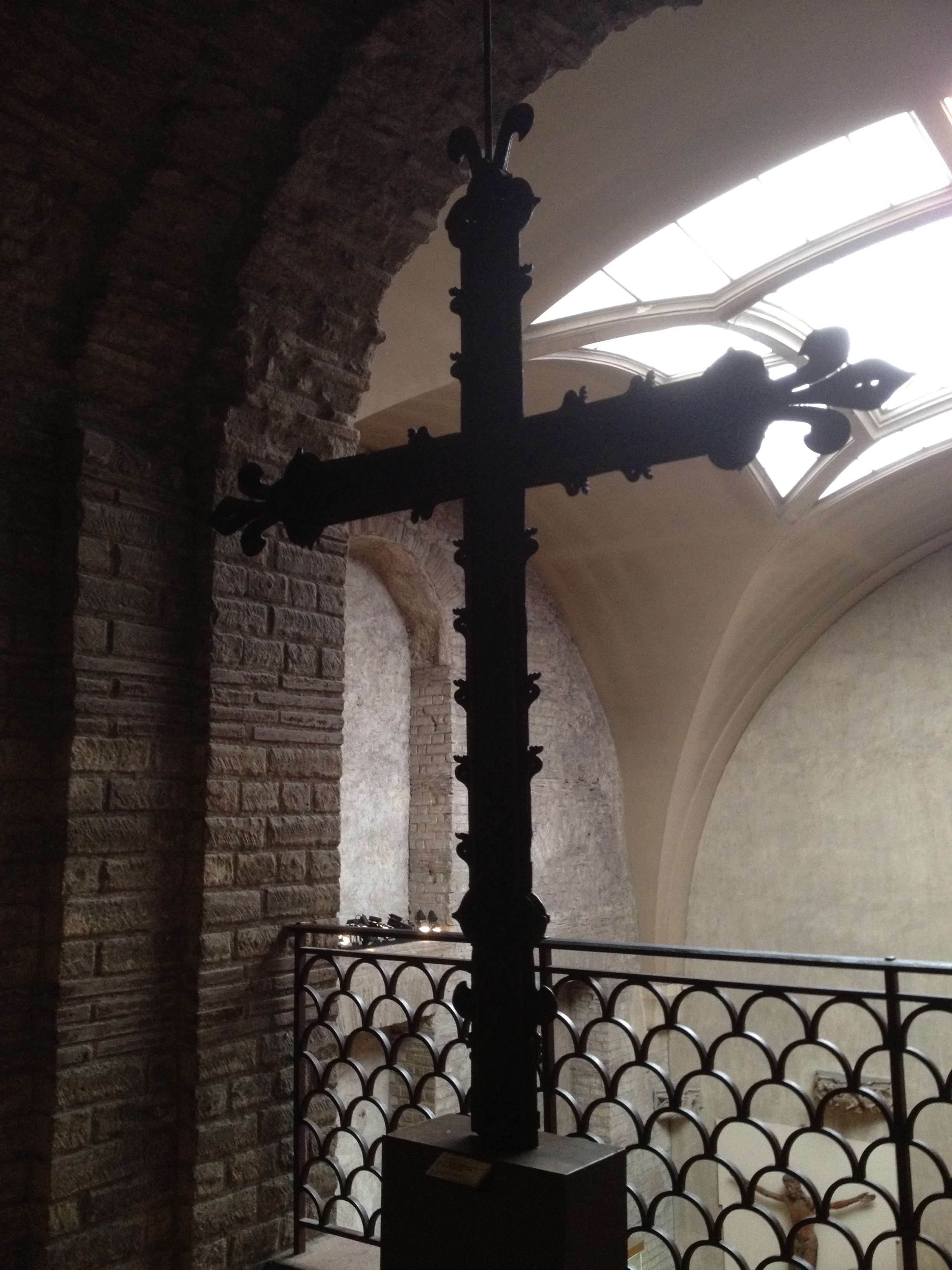
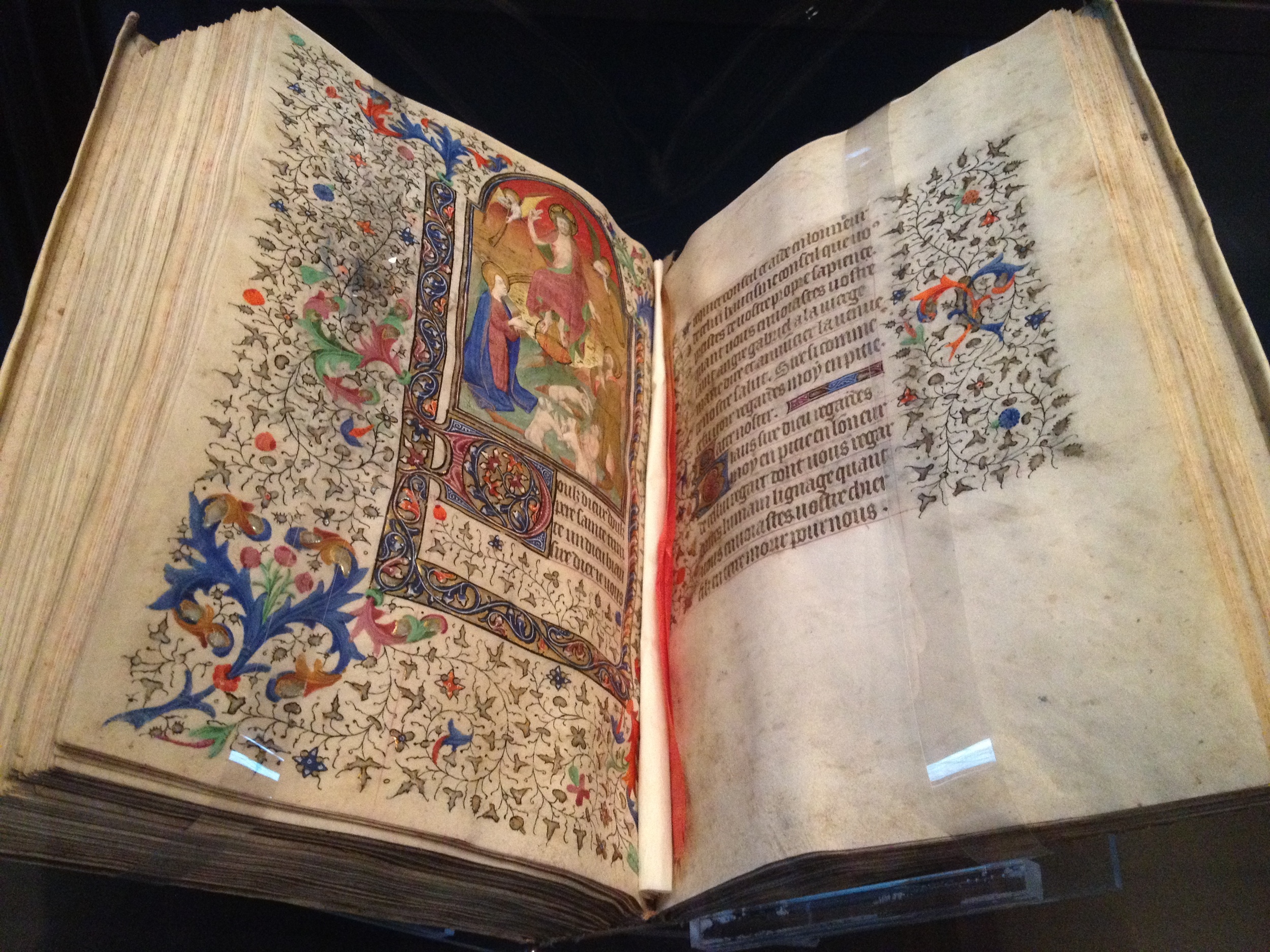

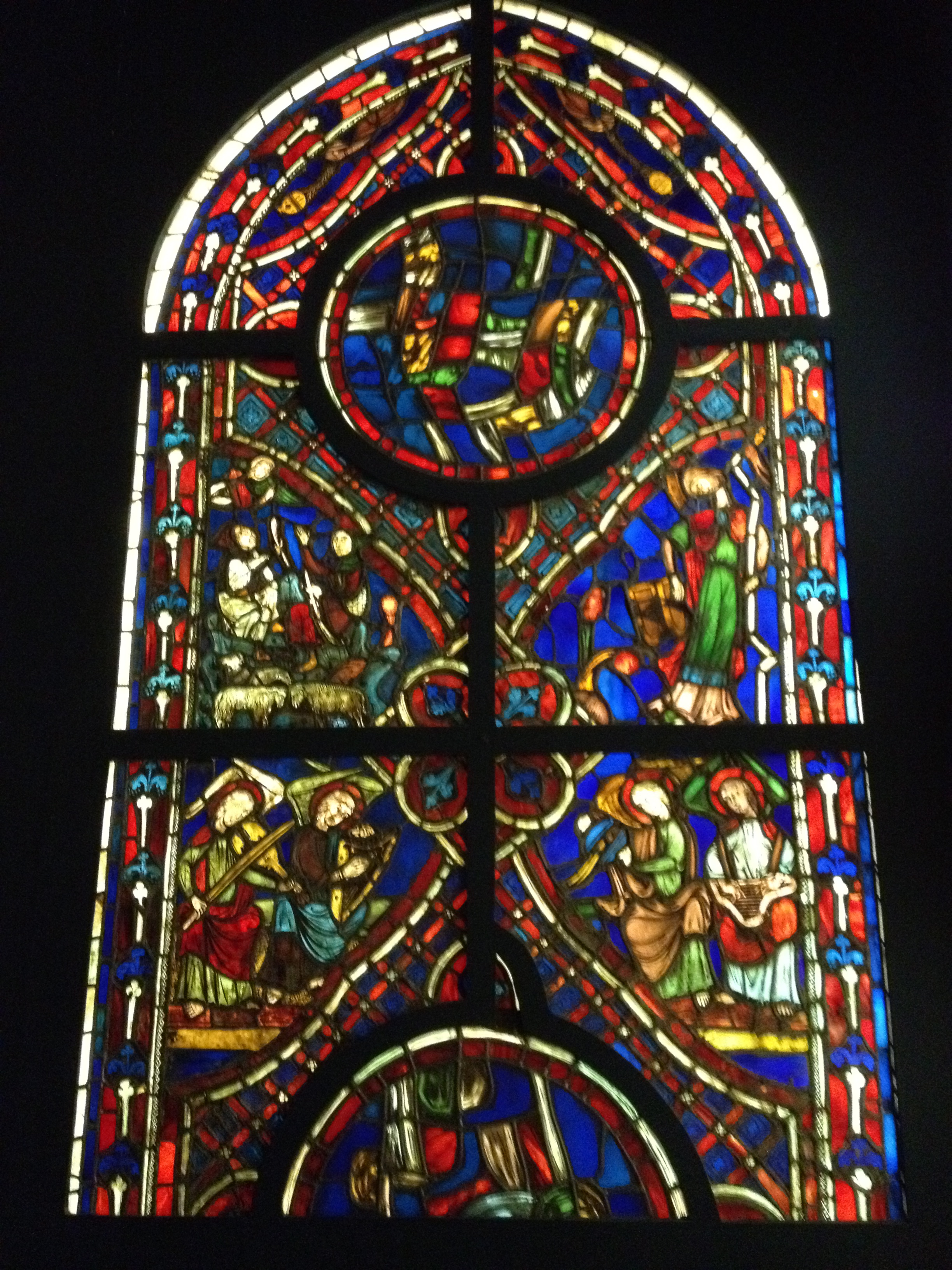
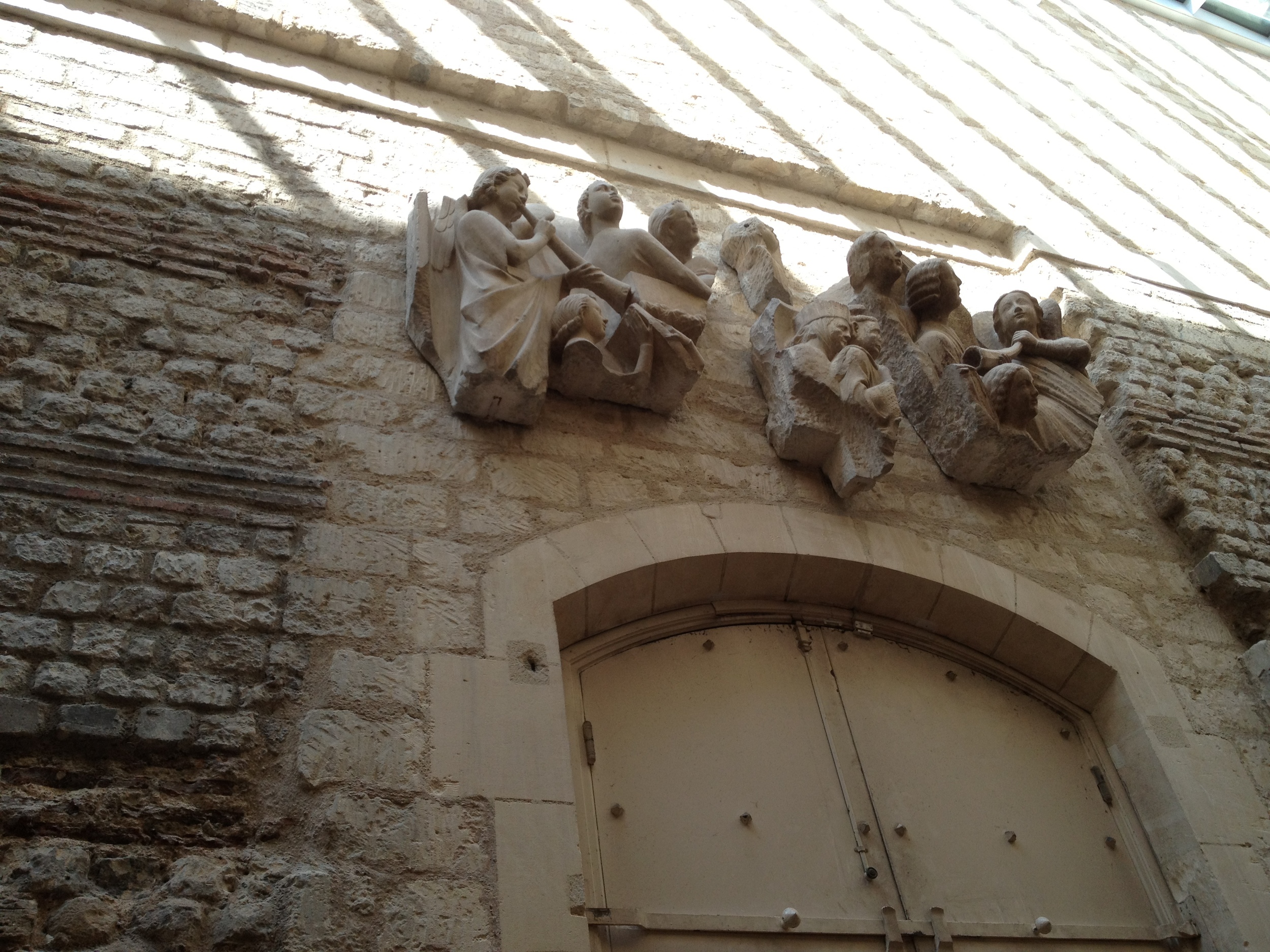
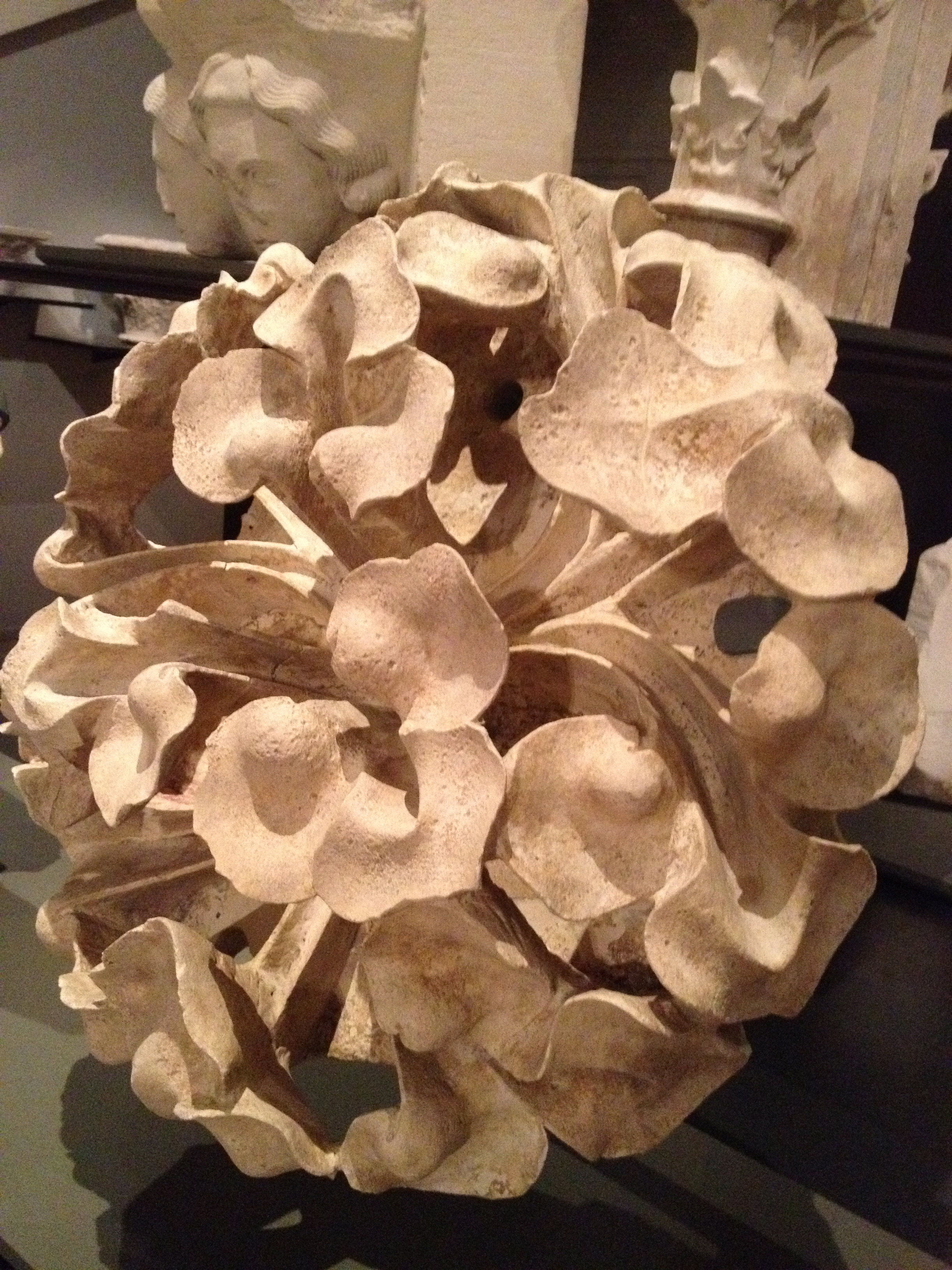
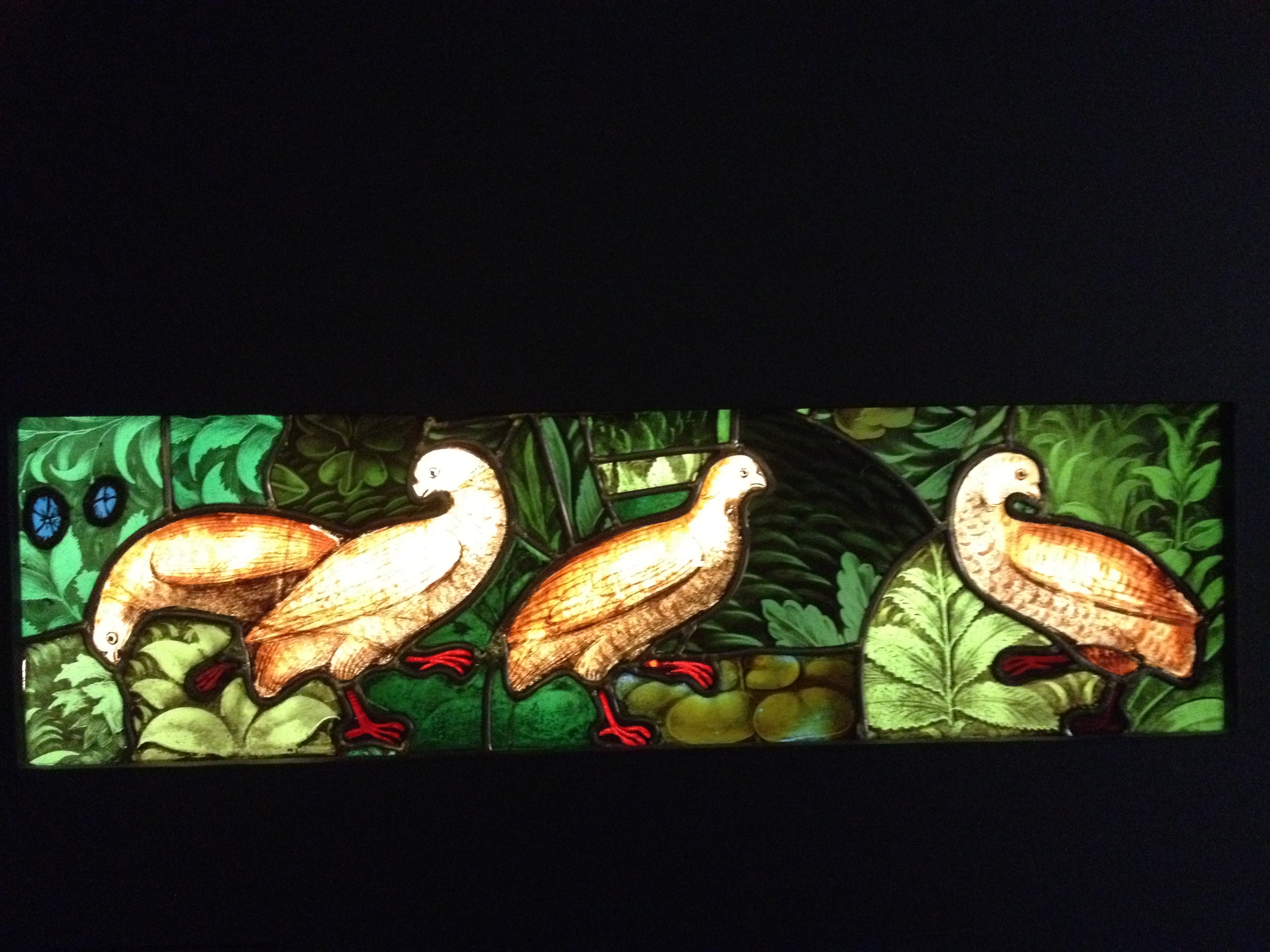
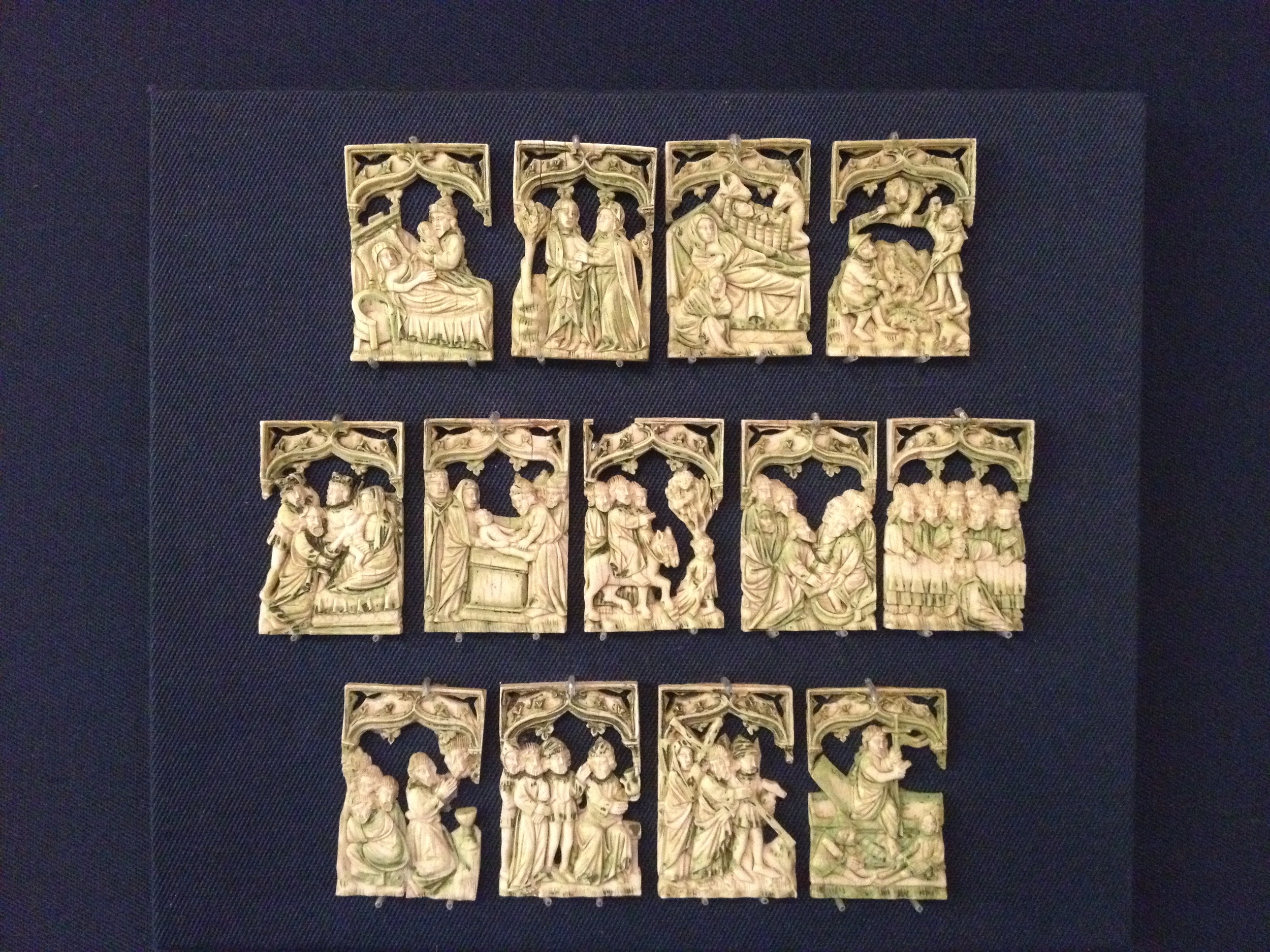
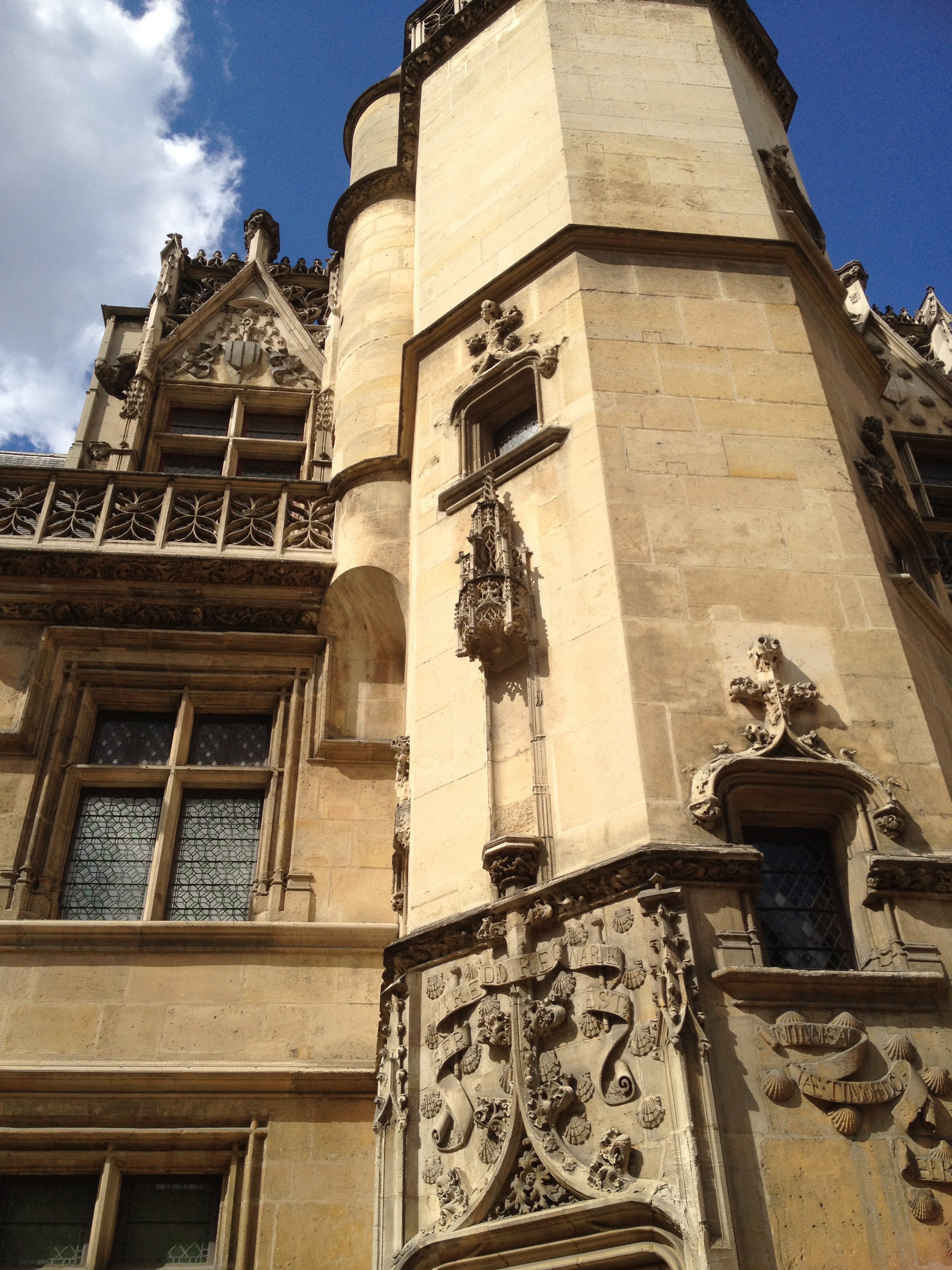
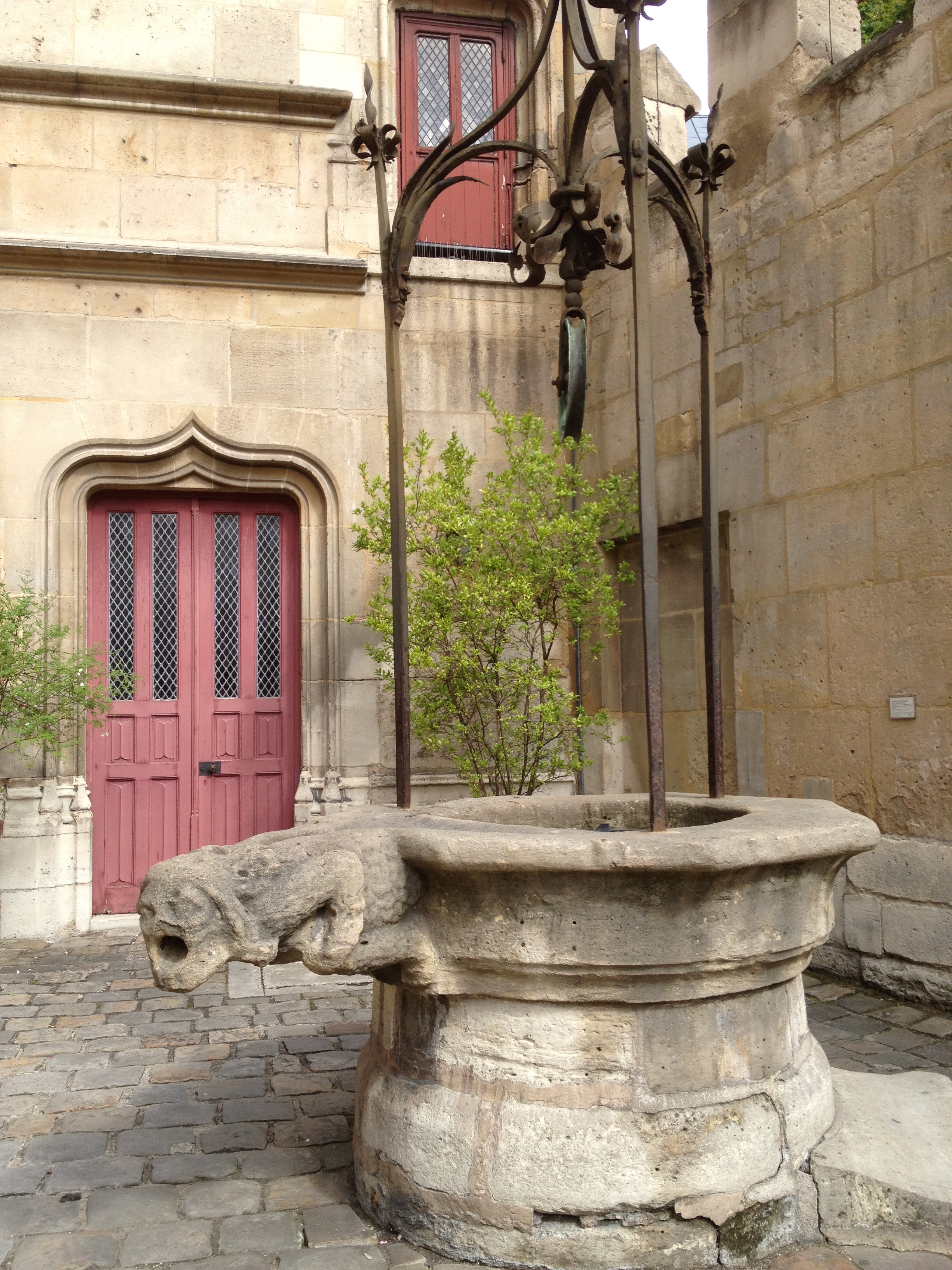
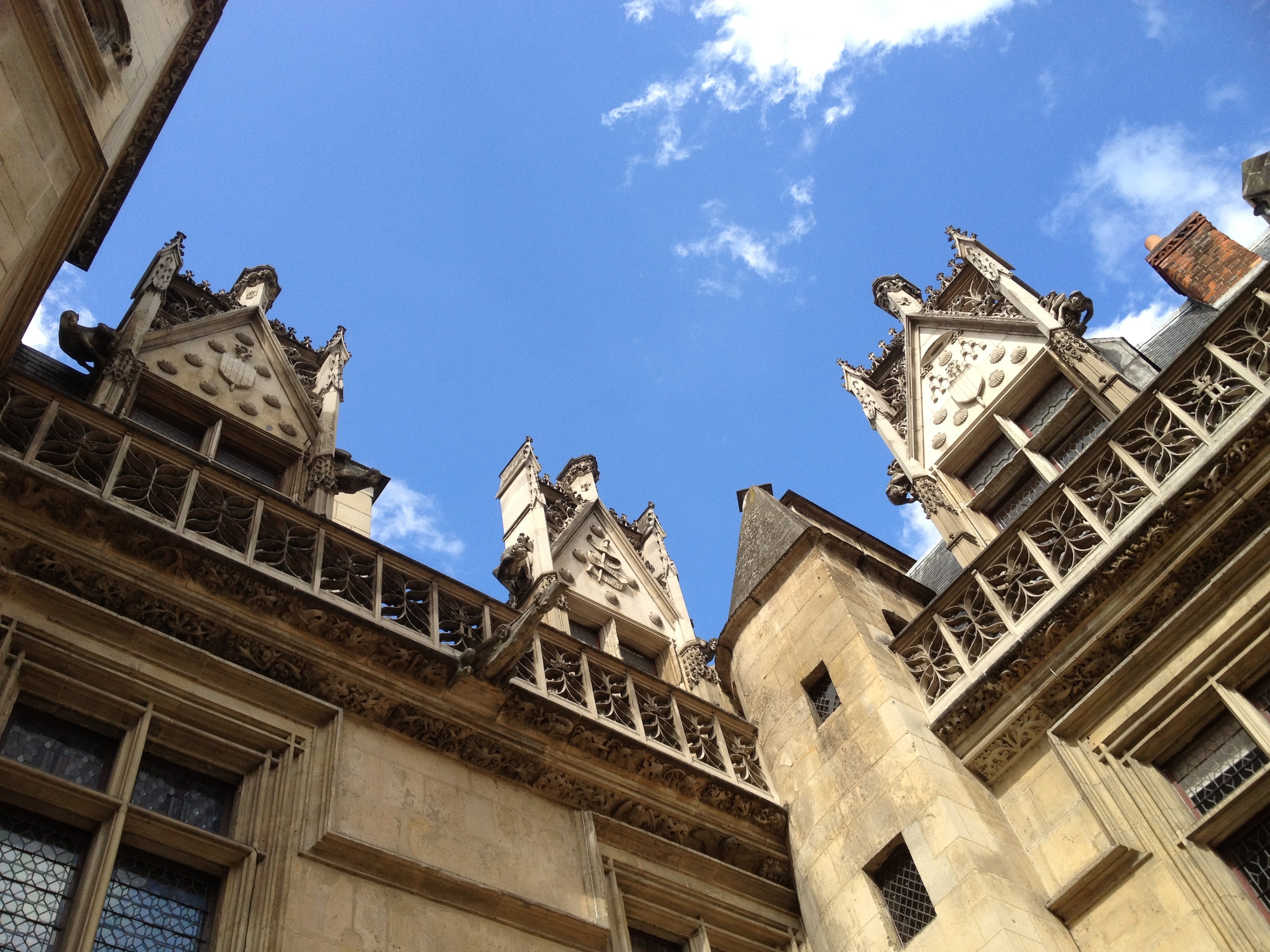

Musee Rodin: What I love the most about this place is its scale. You could see the whole thing, including the lovely gardens, in an hour, but you'll want to linger longer over each intimate piece, marveling at the softness of stone and bronze.
Centre Pompidou: I don't have much tolerance for modern art -- about an hour is the most I can take -- but this building is worth seeing just for its novelty: the idea was to put all the systems (circulation, water, heating and cooling) outside in order to leave the gallery space pristine and unencumbered. The plaza outside is also worth seeing: in the summer there are often impromptu concerts and skateboard performances, and the area is known for good shopping and restaurants.
Cite de la Musique was so wonderful I wrote a post about it several years ago, but this last trip introduced me to another wonderful gem: the Cinematheque Francaise, which houses hundreds of clips, props and costumes from the first films through the present day.
There are others, of course, but the last one I have to recommend is the Musee des Plans-Reliefs, an amazing find composed of immense relief maps created during the Napoleonic Era (all the better to conquer you with, mes amis.) It's only one long room, but it's worth the trip to Les Invalides even if you don't get to see the Little Man himself.
And sometimes you just get lucky, as we did the only time we ever got to the top of La Defense: there was an incredible exhibit at the Musee d'Informatique that covered the history of the Macintosh computer, complete with prototypes and projections of its most famous advertisements. Rob and I were in geek heaven, but we've never been able to go back since: high winds and technical difficulties keep preventing their elevators from ferrying tourists to the top.
Ah, well. It's Paris: there's plenty more to see.
Paris Top 10: Conversation
It is impossible (or at least distasteful) to speak of uninspired things in such an inspired place. Something about the French air moves you to delve into causes and wrestle with universal struggles, sprinkled liberally with superlatives and smiles. My husband told me recently, “You laugh a lot more when you speak French.”
Conversation in France finds you. If you are open to being found, which means speaking a little of the language. (It can be a very little; most French speak English, and they’re not very skilled listeners anyway.) The first time I visited the country, a wide-eyed high schooler, I remember a late-night discussion with my host family about public displays of affection. At my current school they were forbidden, and I was delighted to see that here in the magical land of l’amour, couples held hands and embraced and kissed without any sign of self-consciousness, so wrapped up in their own world and each other’s arms that they were happy for the rest of us to witness their budding rapports.


